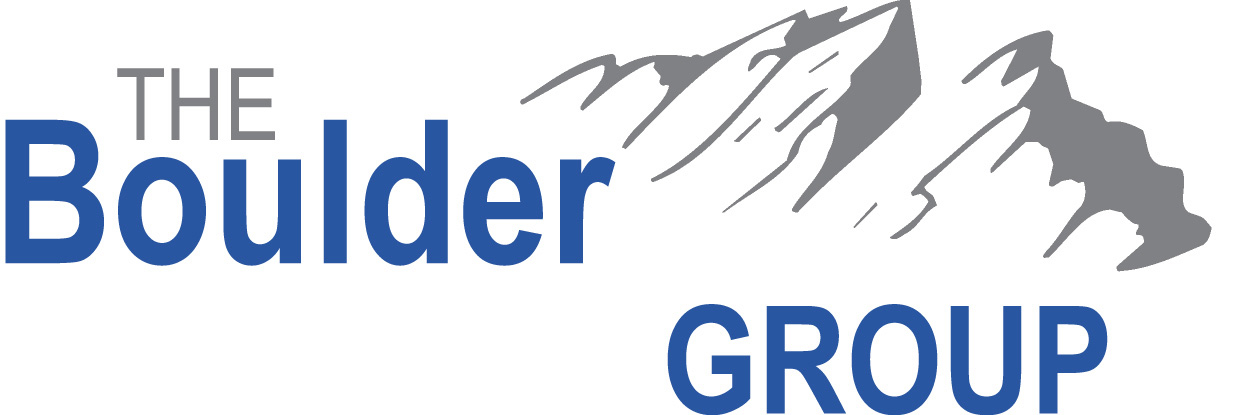Net Lease News
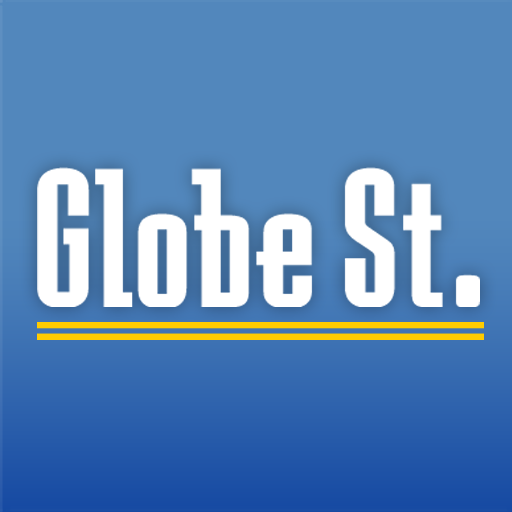
- April 18, 2024
STNL Cap Rates Won't Be Coming Down SoonNet lease cap rates increased for the eighth consecutive quarter in Q1 said panelists at the GlobeSt. Spring Net Lease Conference.
Read More
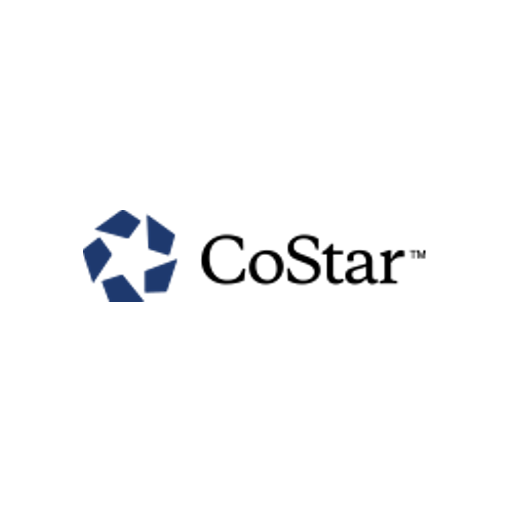
- April 09, 2024
Single-Tenant, Net-Leased Property Sales Fall to 14-Year LowHigh Interest Rates Crimp Property Typically Favored by Investors
Read More
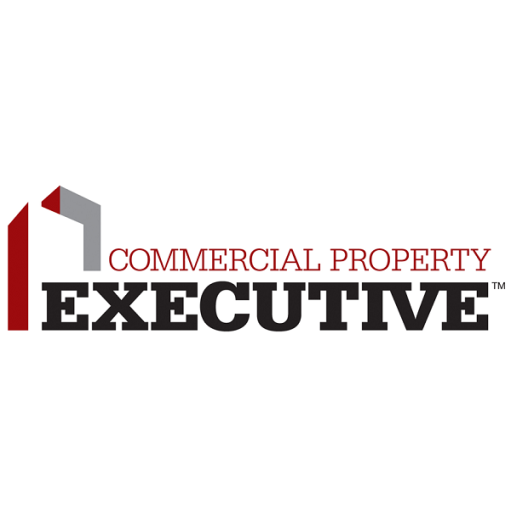
- April 04, 2024
Net Lease Cap Rates Rise AgainThe sector is seeing an increase for the eighth consecutive quarter, according to The Boulder Group’s latest report.
Read More

- March 29, 2024
Private Cash Buyers Dominate Net LeaseInstitutional capital can’t meet sellers’ cap rates.
Read More

- January 23, 2024
Net Lease Cap Rates Continue Upward TrendWith interest rate cuts likely ahead, The Boulder Group forecasts increased transaction volume this year.
Read More

- January 15, 2024
Net Lease Cap Rates Post Seventh Consecutive Quarterly IncreaseSingle-tenant net lease cap rates increased in the fourth quarter of 2023 for the seventh consecutive quarter to 6.58%, a seven-basis point increase compared to Q3, The Boulder Group reported.
Read More

- November 16, 2023
Top-Tier STNLs trading despite headwindsTransaction volumes for single-tenant net-lease retail properties in Colorado and nationally are down significantly.
Read More

- November 14, 2023
Net Lease Cap Rates Up for the Sixth Consecutive QuarterBlame the ‘consistent rise in interest rates,’ says The Boulder Group.
Read More

- November 06, 2023
2024 Forecast: More of the Same?The industry faces multiple challenges, but there are opportunities for savvy investors, panelists said during yesterday's CPE Voices webinar.
Read More

- November 01, 2023
Why Net Lease Cap Rates Continue RisingThe Boulder Group's Randy Blankstein on how capital markets trends are vexing this property type.
Read More

- October 05, 2023
The Boulder Group expands reach, opens Denver marketThe Boulder Group, a boutique investment real estate service firm specializing in single-tenant net lease properties, opened a new office in Denver, Colorado.
Read More

- September 06, 2023
Net Lease Makes a ResetNet lease has been plagued with plummeting sales but it is among the most resilient of asset classes.
Read More

- August 04, 2023
Net-Leased Property Sector Shows Signs of Higher RiskCapitalization Rates Rise for Fifth Consecutive Quarter
Read More

- August 02, 2023
Net Lease Inventory in Flux as Owners Hold Onto Assets LongerOwners are no longer able to sell their properties for more than the purchase price.
Read More

- June 28, 2023
Net Lease Deals Falter Amid Challenging EnvironmentA stubborn bid-ask spread fueled by higher interest rates is keeping all parties on the sidelines and pondering value.
Read More
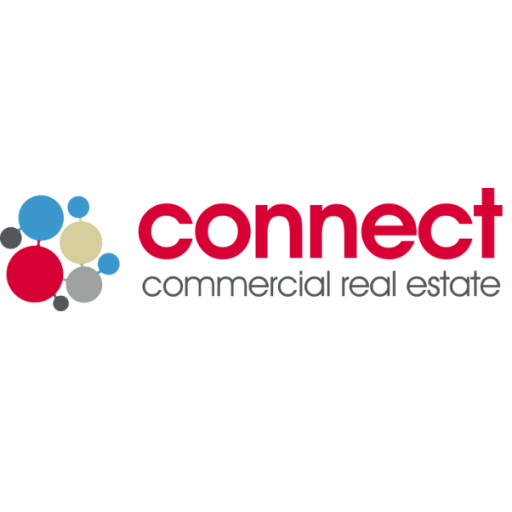
- May 26, 2023
Net Lease: Cap Rates Increase, Though Sector Remains StrongVarious reports targeting the single-tenant net lease arena focused on two themes. First, cap rates did increase during the first part of 2023. And second, while transactions declined during the same period, investors still liked the sector.
Read More

- May 05, 2023
Is this the new normal? In net lease market, everyone’s waiting for sellers and buyers to adjust to new economic realitiesThe net lease sector has provided a haven for investor dollars during even the most challenging of economies. But today? That is changing.
Read More
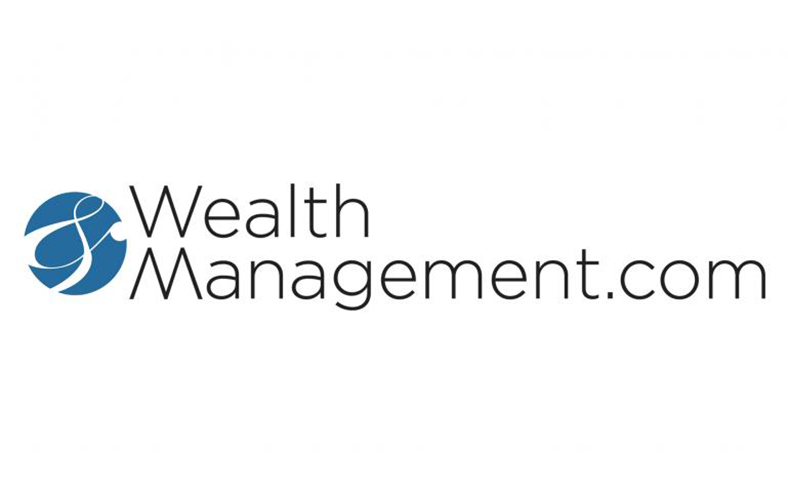
- April 24, 2023
Net Lease Investors Take a Pause as Price Discovery Gets TougherLow leverage and all-cash buyers continue to drive activity in the net lease space. But investors are tightening acquisition criteria to account for higher risk.
Read More

- April 07, 2023
Office, Retail Net Lease Cap Rates Reach Highest Level Since 2020A new Boulder Group report cites higher borrowing costs as the main reason for the year-long trend.
Read More

- April 04, 2023
Net Lease Cap Rates at Highest Levels in Nearly Three YearsThe depth of the 1031 buyer pool will be limited when compared to historical standards.
Read More

- January 20, 2023
Net Lease Cap Rates Increase for 3rd Consecutive QuarterThe Boulder Group's Randy Blankstein on how macroeconomic factors are impacting this sought-after sector.
Read More

- January 17, 2023
Net Lease Cap Rates Continue to ExpandIncreased borrowing costs and a decreasing amount of 1031 exchange investors hinder activity.
Read More

- November 28, 2022
In a Volatile Market, Investors View Early Childhood Education Centers with Greater InterestBecause they trade at higher cap rates and are viewed as recession-resistant, net lease investors are picking up more early childhood education properties.
Read More

- October 18, 2022
Owners of Single-Tenant Properties Rush To List Sites for Sale As Interest Rates RiseRising inflation is causing an influx of single-tenant commercial properties to hit the market after the number of sales shrank in the third quarter, a marked change from the first half of the year.
Read More

- October 06, 2022
Single Tenant Net Lease Cap Rates Ticked Up Again In Q3The cap rates increases were observed across all three asset classes in Q3, according to research from The Boulder Group.
Read More

- October 04, 2022
Net Lease REITs and Private Aggregators Increase Retail Acquisitions TargetsNet lease retail REITs, aggregators and cash buyers are anticipating an extremely active acquisitions environment for the remainder of the year as terms become more attractive.
Read More

- September 27, 2022
Net Lease Retail Valuations Finally Cracking Under Interest Rate PressureDemand for net lease retail is softening, which is forcing a pricing reset—albeit more slowly than buyers would like.
Read More

- September 23, 2022
Investors Are Still Flocking To Single-Tenant Net LeaseSales activity rose between 24% to 27% across the 12-month span ending in June for the sector.
Read More

- September 19, 2022
Net Lease May Wobble But It Always Remains SteadyDespite some deal volatility, net lease is awash in capital and investor interest remains strong.
Read More

- September 16, 2022
What the $14B GIC-Oak Street Buy Means for Net LeaseWhile surprised by the plan, analysts now expect more such moves in the coming months.
Read More

- August 18, 2022
Challenges? No doubt. But optimism still rules during 8th annual National Net Lease SummitRandy Blankstein, president of the Boulder Group in Wilmette, Illinois, in an interview with Midwest Real Estate News earlier this year referred to higher interest rates as a possible wrench in the net lease market, something that could slow this commercial sector’s long-building momentum.
Read More

- July 07, 2022
South Jersey Office Complex Occupied By Lockheed Martin Sells For $51MBy turning a 46% profit in just over eight months of ownership, Regal Ventures has demonstrated the value of a stable office property in a commercial real estate market teetering on the brink of recession.
Read More

- July 06, 2022
Net Lease Cap Rates Are Climbing. Now What?Cap rates in the single-tenant net lease sector increased slightly or were unchanged in the second quarter of 2022.
Read More

- July 05, 2022
Retail, Office Cap Rates Rise in Q2Consequently, transaction volume in the second quarter of 2022 was down approximately 15%.
Read More

- June 06, 2022
Net Lease Investors Return to Restaurant SectorRecovery from Covid-19 leads to cap rate compression, Boulder Group reported.
Read More

- May 03, 2022
Q1 Cap Rates for Single Tenant Bank Properties ShrinkMarket conditions in the net lease sector combined with an increase in supply of longer leased properties make an impact.
Read More

- April 28, 2022
The net lease sector in 2022? So far, it’s almost all good newsLast year was a sizzling 12 months for the net lease sector of the commercial real estate business. And 2022? So far, it’s been strong, too. But can this year hope to measure up to 2021?
Read More

- April 05, 2022
Is It Time to Recalibrate Net Lease Cap Rate Expectations?While increased competition has pushed net lease cap rates down, exclusive WMRE research found some mixed views on whether the tide will turn.
Read More

- April 04, 2022
Single-Tenant Net Lease Cap Rates Drop to Record LowA Boulder Group report cites cap rate compression in all retail, office and industrial assets.
Read More

- March 16, 2022
Investment Activity in Automotive Net Lease Assets Speeds UpWhen The Boulder Group brought a net lease property occupied by Firestone Tire and Rubber Company to market a few months ago, it received six offers before trading for $4.1 million to a private investor based in the southeast.
Read More

- March 04, 2022
Single Tenant Auto Properties Compress Amid Increasing DemandA market dominated by auto parts retailers, the single-tenant auto sector’s national asking cap rates decreased to 5.40% in Q4, according to The Boulder Group’s 2021 Net Lease Auto Report.
Read More

- February 02, 2022
Cap Rates for Single-Tenant Big Box Properties CompressThe Boulder Group cites high demand from surplus of capital as the primary factor.
Read More
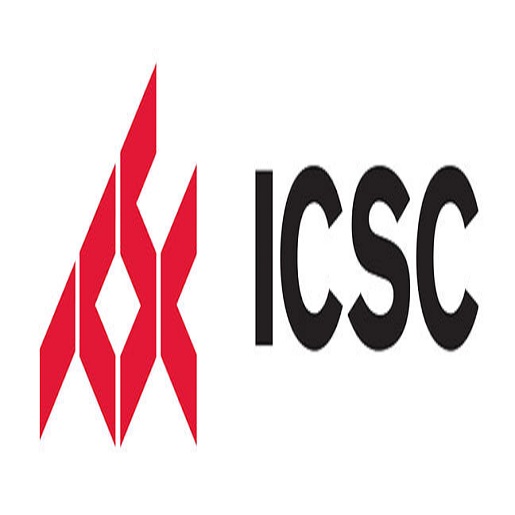
- January 21, 2022
A Wave of Assets Watered Down Net Lease Cap Rates in Q4Owners of freestanding stores dumped a load of lesser-quality properties on the market in the fourth quarter, driving up cap rates for the sector slightly from the third quarter’s historic lows, according to a Boulder Group survey of deals.
Read More

- January 03, 2022
Net Lease Cap Rates Tick Upward in Q4Single-tenant net lease cap rates rose slightly in the fourth quarter of 2021; following historic lows in Q3, the Boulder Group reported.
Read More

- December 15, 2021
Net Lease Investors Discover the Benefits of ‘Medtail’Randy Blankstein of The Boulder Group explains why this blend of health care and retail is experiencing strong appeal.
Read More

- November 18, 2021
Medical Net Lease Makes Its Bones with InvestorsPreviously trading at a discount to overall net lease, it’s swung into a premium.
Read More

- November 10, 2021
Will Inflation Erase the Demand for Net Lease Drugstores?The lack of rent escalations in drugstore leases could be a problem in an inflationary environment. But the story is more complex than that.
Read More

- November 02, 2021
Cap Rates for Net Lease Drug Stores Reach Historic LowsDrug store pricing is strongest within the STNL retail sector and is outperforming the broader retail market.
Read More
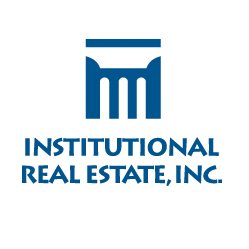
- October 28, 2021
Cap Rates for net-lease drugstores reach historic lowIn the third quarter, national asking cap rates in the single-tenant drugstore sector compressed to 5.8 percent according to the 2021 Net Lease Drug Store Report by The Boulder Group.
Read More

- October 15, 2021
Net lease does what it’s built to do: Thriving during challenging timesAny fears that the net lease market would crash under the weight of the COVID-19 pandemic disappeared quickly as the sector continued to draw the dollars of investors even during the most challenging days of 2020.
Read More

- October 05, 2021
Why Net Lease Cap Rates Hit New LowsThe Boulder Group’s latest report looks at what’s ahead for investment in the single-tenant sector.
Read More

- October 04, 2021
Net Lease Cap Rates Reach Historic Lows A Boulder Group report cites heightened investor demand as the primary factor.The Boulder Group’s Third Quarter Net Lease Research Report showed cap rates in the single tenant net lease sector reaching a historic low for all three asset classes in 2021. Cap rates for retail, office and industrial fell to 5.80%, 6.80% and 6.70%, respectively.
Read More

- September 30, 2021
Retail investment deals are flowing again. What it meansDespite widespread speculation that the pandemic would cause a major contraction of the U.S. commercial real estate market, reports show that it has bounced back to pre-pandemic levels.
Read More

- August 27, 2021
Cap Rates for Single-Tenant QSR Properties Reach Historic LowIn the second quarter, national asking cap rates in the single-tenant quick-service restaurant (QSR) sector decreased to a new historic low of 5.26 percent, according to the 2021 Net Lease QSR Market Report by The Boulder Group. This represented a decrease of 39 basis point from the same period in the prior year.
Read More

- August 03, 2021
Lower Quality Net Lease Assets Hit MarketThe segment of properties made up a larger concentration of the market in the second quarter.
Read More

- August 02, 2021
Online Banking, Consolidation Lead to Lower Interest in Bank Branches as a Net Lease PlayAssets occupied by the top 10 banks are still highly prized. Investors view smaller operators more critically.
Read More

- August 02, 2021
Dollar Store Cap Rates Fall in Q2Eighty-two percent of the dollar store supply on the market was with Dollar Generals.
Read More

- July 13, 2021
Multiple Factors Will Determine How Net Lease Plays OutUnless the sale-leaseback market picks up, there is not a lot of new supply going to hit the market.
Read More

- July 09, 2021
Limited supply of quality net lease investments available, plus 12 recent retail property purchasesA pile of single-tenant net lease retail properties with short-term leases and less-desirable tenant credit have been put on the market, pushing cap rates for the sector up by 11 basis points from the first to the second quarter, according to The Boulder Group’s Q2 2021 Net Lease Market Report.
Read More

- July 08, 2021
Honoring Net Lease ProfessionalsIn preparation for the GlobeSt. Net Lease Fall 2021 conference and GlobeSt. Real Estate Forum’s September issue, we are celebrating the top professionals within the net lease field.
Read More

- July 08, 2021
Dollar General Takes 'First Major Step' Toward Expanding Healthcare Products in StoresDollar General may have taken its first step toward adding pharmacy services to its stores, a move that could require the chain to reshuffle some real estate.
Read More

- July 02, 2021
Cap Rates Rise for Net Lease and IndustrialCap rates in the single-tenant net lease sector rose slightly in the second quarter after hitting historically low levels in the previous quarter, according…
Read More

- June 18, 2021
Net Lease Grapples With Potential Change Post-Pandemic and Post-BidenThe first panel discussion of the GlobeSt. Net Lease event wasted no time in addressing the Biden administration's threat to eliminate the 1031 exchanges.
Read More

- June 15, 2021
Is the Net Lease Market on the Verge of Becoming Frothy?For all intents, net lease transactions had a banner quarter in the first part of this year, according to CBRE stats. Net-lease investment volume totaled $14.3 billion for the first quarter, a 2.6% year over year drop that prompted CBRE to say the sector was close to its pre-pandemic performance. For commercial real estate as a whole, by comparison, volume was down 18.3% in Q1 2021, according to Real Capital Analytics.
Read More

- June 14, 2021
Mall Retailers Are Exploring Freestanding Sites. Are They a Good Bet for Net Lease Investors?Even before the pandemic, retailers were evaluating their physical footprints and shuttering underperforming store locations. COVID-19 accelerated that trend, forcing many retailers to be more aggressive with optimizing their store portfolios.
Read More

- June 03, 2021
The Boulder Group’s Blankstein: The net lease segment is a good story right nowAfter more than a year of turmoil thanks to the COVID-19 pandemic, investors are ready to sink their dollars into net lease assets. And they might be doing this at a brisk pace.
Read More

- May 27, 2021
Single-tenant casual dining properties lag net-lease marketIn the first quarter, national asking cap rates in the single tenant casual dining sector increased 6.73 percent, according to the 2021 Net Lease Casual Dining Report by The Boulder Group.
Read More

- May 24, 2021
Connect cre's 2021 Next Generation AwardsJohn Feeney is an SVP with The Boulder Group, a boutique investment real estate service firm specializing in single tenant net lease properties.
Read More

- May 19, 2021
Is There a Limit to Sale Leaseback Growth?Many observers see a large, untapped market for sale-leasebacks, but there may be a limit to growth through those transactions.
Read More

- May 18, 2021
WMRE's Common Area: What's Trending in Net Lease InvestmentBoulder Group's Randy Blankstein discusses the current lay of the land in the net lease world, including what investors need to know about the potential change in how like-kind exchanges are taxed.
Read More

- May 11, 2021
Property investors hunt increasingly scarce new bank branchesBanks are chasing population growth, and property investors are chasing increasingly scarce net lease bank ground leases.
Read More

- April 30, 2021
Bank Cap Rates Compress in Q1In the first quarter, single-tenant bank ground lease national asking cap rates decreased 12-basis points year-over-year to 5.35%, according to the 2021 Net Lease Bank Ground Lease Report from The Boulder Group.
Read More

- April 29, 2021
How Biden’s Carried Interest Plan Would Play Out in Net LeaseThe net lease sector is bracing itself for the impact of President Biden’s plan to end the tax break for those who earn capital gains of $500,000 or more. “The plan, as it stands, would be detrimental to the net lease industry,” says John Feeney, senior vice president of The Boulder Group. “I would say the majority of the exchanges that occur in net lease would fall above that $500,000 limit.”
Read More

- April 13, 2021
Single-Tenant Retail, Industrial Cap Rates Reach Historic LowsCap rates in the single-tenant net lease sector reached historic lows for the retail and industrial sectors for retail and industrial properties, the Boulder Group reported in its 1st Quarter Net Lease Research Report. Single tenant retail cap rates compressed by nine basis points to 5.91%, while industrial compressed by four bps to 6.71%. Office cap rates increased by five bps to 6.95%
Read More

- April 13, 2021
Big Boxes Adjust to New Market RealitiesRight now, the big box world is a tale of two markets. Properties housing essential tenants, like grocery stores, are hot. Properties with gyms and movie theaters are struggling. Assets with investment-grade tenants are flourishing. Others are not. The strong performance of the essential tenants has been a bit of a surprise
Read More

- April 08, 2021
How Net Lease Cap Rates Hit a Record LowIn the single-tenant space, industrial assets are the most sought-after property type due to their secure cash flow.
Read More

- April 02, 2021
Investors Pour Into Net Lease Retail, Sending Cap Rates Down To Historic LowsIt may seem like an odd time for investors to jump into retail. But buyers flocked to net lease retail properties in Q1, intensifying competition and sending cap rates for the sector to a historic low.
Read More

- April 02, 2021
Net Lease Cap Rates Hit Historic Lows. Strong demand for essential properties drives up pricing.In the first quarter, the single-tenant net lease sector reached historic lows for the retail and industrial sectors, according to new research from The Boulder Group. In Q1, single-tenant retail cap rates compressed by nine basis points to 5.91%. Industrial cap rates fell four basis points to 6.71%, while office cap rates rose five basis points to 6.95%.
Read More

- March 18, 2021
Institutions See Appeal in Collision CentersBefore the pandemic, experiential retail was all the rage. Landlords were looking for e-commerce-resistant concepts that would draw people out of their homes and to their centers. The COVID shut everything down. “Experiential was, between casual dining, Dave and Buster’s or Chuck E Cheese, definitely impacted the most by COVID,” says Randy Blankstein, president of The Boulder Group.
Read More

- March 02, 2021
Investors Chasing Stability Drive Record Demand for Retail Properties With Essential Big-Box TenantsAppetite for Long-Term Leases, Creditworthy Tenants Sends Cap Rates to All-Time Lows
Read More

- March 01, 2021
New Development Fuels Net-Lease Auto SectorNational asking cap rates in the single-tenant net-lease auto sector decreased to 5.89 percent in the fourth quarter, according to the 2020 Net Lease Auto Report, by The Boulder Group.
Read More

- February 25, 2021
Asking Cap Rates for Auto Sector DecreaseIn the fourth quarter, national asking cap rates in the single-tenant auto sector decreased 48 basis points to 5.89%, according to the 2020 Net Lease Auto Report from The Boulder Group.
Read More

- February 11, 2021
Big Box Cap Rates DropAs investors chased big box assets with investment-grade, essential tenants, cap rates in the single tenant net lease big-box sector decreased by 25 basis points to 6.75% from Q4 2019 to Q4 2020, according to The Net Lease Big Box Report from The Boulder Group.
Read More

- February 03, 2021
Net Lease Big-Box Sector Outperforms MarketInvestors are scooping up this "essential" segment of the single-tenant retail market, reports Randy Blankstein of The Boulder Group.
Read More
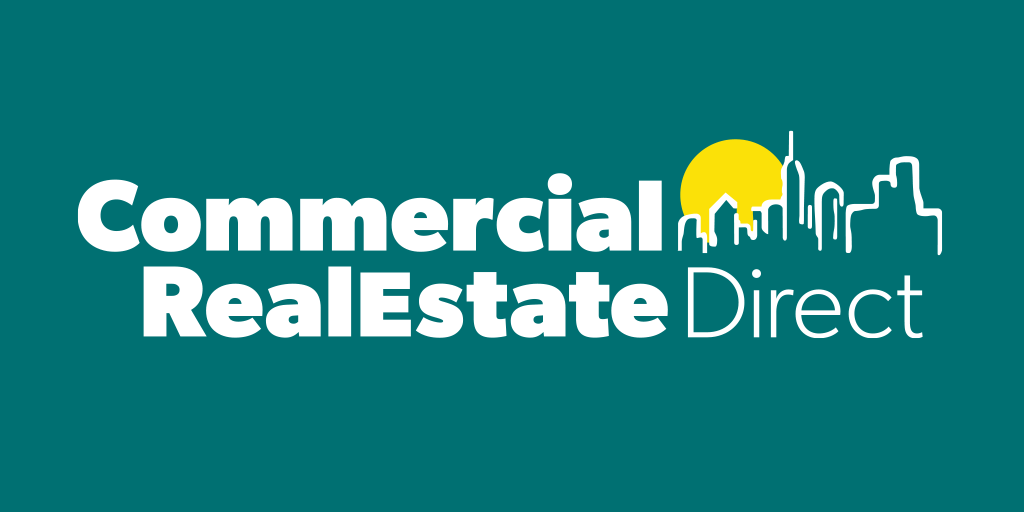
- January 28, 2021
Net-Leased Cap Rates Reach New Lows in 4QCapitalization rates, or the initial yields that investors require from triple-net leased properties, last year declined to historic lows as interest rates remained low and investors pushed up prices...
Read More

- January 14, 2021
Fundraising Jumps for Net Lease PurchasesHeading into 2021, Randy Blankstein, president of The Boulder Group, sees one big trend for the net lease space.
Read More

- January 12, 2021
Net Lease Shows Resilience Amid PandemicThe net-lease property sector has demonstrated resilience during the COVID-19 pandemic.
Read More

- January 05, 2021
Net Lease Cap Rates Close 2020 at Record LowsThe all-time low was attributed largely to strong compression in the industrial sector, according to The Boulder Group's latest report.
Read More

- January 04, 2021
Single-Tenant Net Lease Cap Rates Reach New LowsCap rates for single tenant net lease retail, office and industrial reached new all-time lows in the fourth quarter, the Boulder Group says in a new report. However, the firm notes a decline in transaction volume during 2020 and cites uncertainty looming in the year ahead.
Read More

- December 16, 2020
Net Lease Medical Properties With Better Tenants in Short SupplyTransaction volume in the third quarter for the net lease medical sector increased by approximately 6 percent over 2019, according to Randy Blankstein of The Boulder Group.
Read More

- December 14, 2020
Urgent Care Draws in Net Lease InvestorsAs real estate investors have sought safe havens in a tumultuous 2020, the medical sector has been a ripe target. Life sciences were on the upswing even before this year. But the search for vaccines and therapeutics to battle COVID-19 have boosted lab space.
Read More

- December 03, 2020
Cap Rates Rise in Single Tenant Medical SectorNon-investment grade tenanted properties made up 89% of the supply in the third quarter. National asking cap rates in the single-tenant medical sector increased to 6.50%, according to The Boulder Group’s 2020 Net Lease Medical Report. That was a 5-basis point increase when compared to the prior year.
Read More

- December 03, 2020
Single-tenant medical properties with investment-grade tenants in short supplyIn the third quarter, national asking cap rates in the single-tenant medical sector increased to 6.5 percent, according to the 2020 Net Lease Medical Report by The Boulder Group. This represented a 5 basis point increase when compared to the prior year.
Read More

- December 03, 2020
Quick Service Restaurants Remain a Desirable Play for Private InvestorsThe COVID-19 pandemic has changed how consumers live, work and dine out. Due to the virus, Americans have flocked to fast-food drive-throughs for inexpensive menu options with little contact.
Read More

- November 30, 2020
Replay Video of The Boulder Group’s Randy Blankstein Moderating the Net Lease Market Overview Panel at the National Net Lease Summit Conference
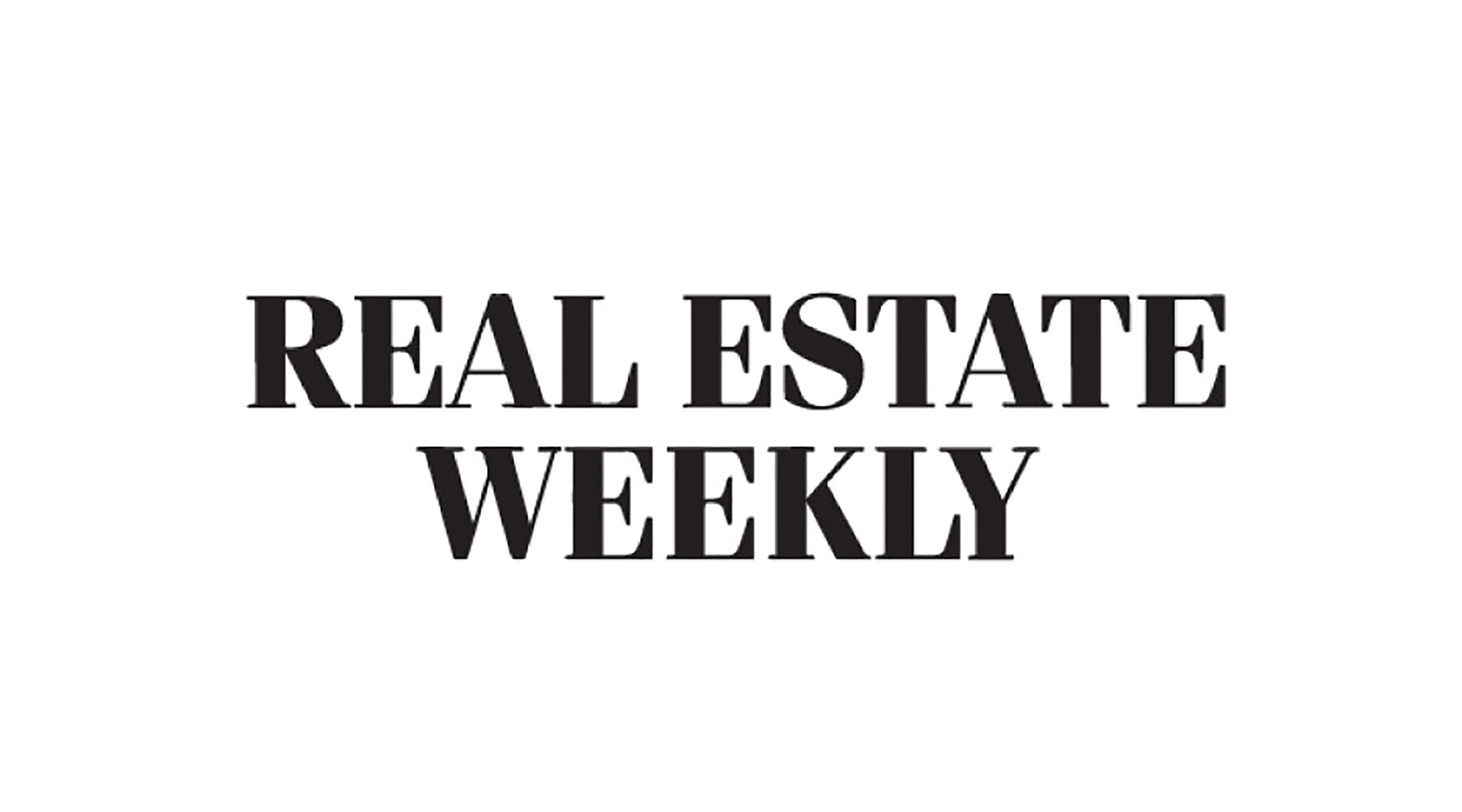
- November 30, 2020
Why investors are snapping up net leased drug storesIn the third quarter, national asking cap rates in the single tenant drug store sector increased to 6.39 percent, according to the 2020 Net Lease Market Report. This represented a 17 basis point increase when compared to the prior year.
Read More

- November 23, 2020
The Two Net Lease Markets“It is so bifurcated,” Blankstein says. “It’s the craziest market I’ve ever seen. You either have something that everybody wants, or you have something that you can’t even get a bid on.”
Read More

- November 20, 2020
Net Lease Conference: Waiting for the perfect storm of a big 2021Next year? It should be a big one for the net lease business. And if an effective vaccine is widely distributed in 2021? That could provide an even bigger boost for net lease investment, development and leasing activity.
Read More

- November 18, 2020
Net Lease Drugstore Transaction Volume SurgesWhile many other businesses were shut, CVS, Rite Aid and Walgreens remained open and continued to pay rent, notes Randy Blankstein of The Boulder Group.
Read More

- November 18, 2020
Amazon’s Online Pharmacy Targets Popular Net Lease SegmentThrough the pandemic, pharmacies have been an e-commerce resistant segment of the real estate market. But that could be changing with a new announcement from Amazon.
Read More
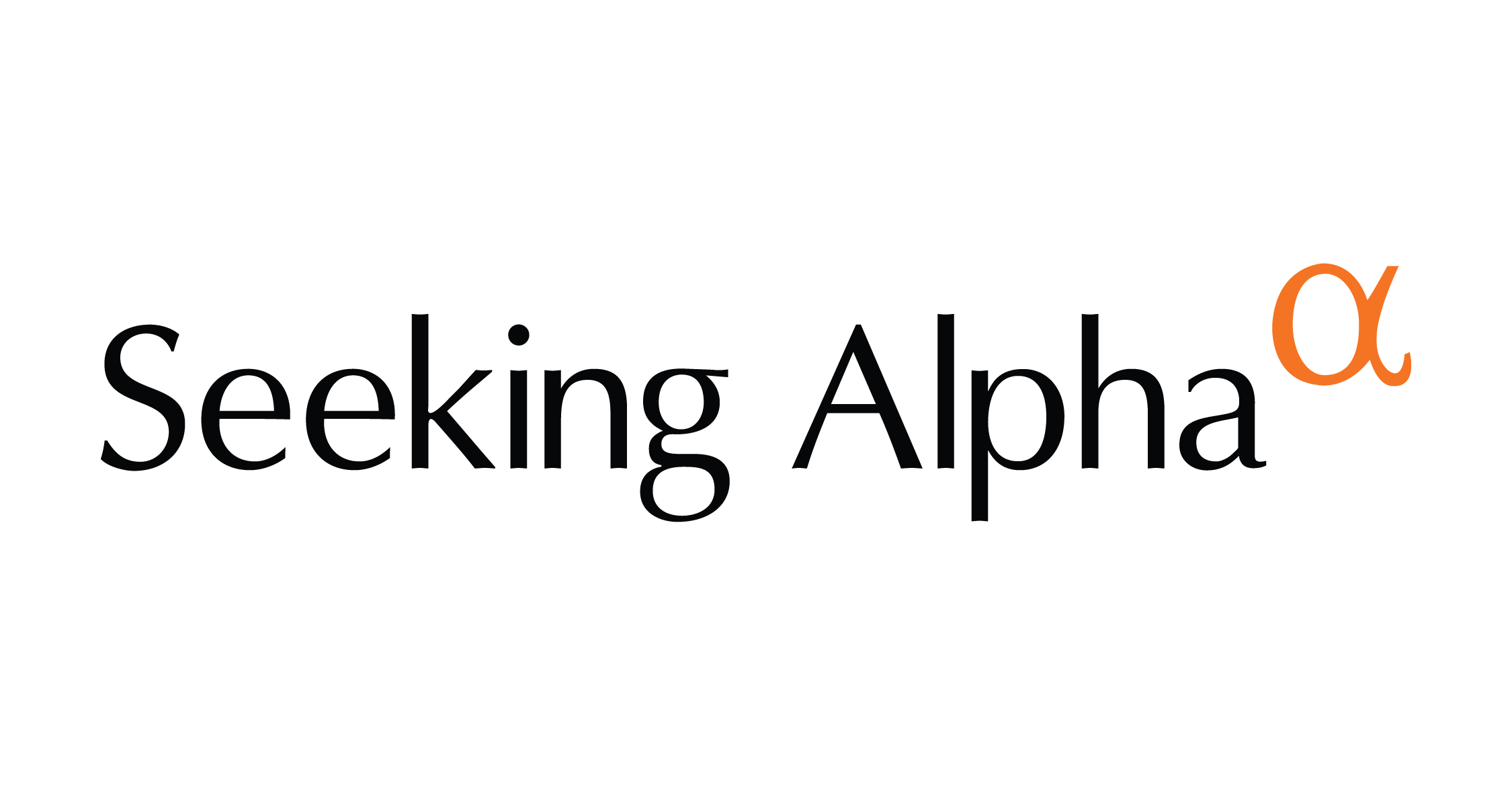
- November 13, 2020
How To Unlock Value In The Net Lease REIT SectorCap rates, for the record, are one metric to predict an investment property’s potential rate of return. It equals net operating income divided by current property value.
Read More

- November 02, 2020
Single Tenant Drug Store Sector Cap Rates IncreaseNational asking cap rates in the single-tenant drug store sector increased to 6.4% in the third quarter, according to The Boulder Group’s Net Lease Drug Store Report. This represented a 17 basis point increase when compared to the prior year.
Read More

- October 29, 2020
Single-Tenant Drugstore Properties SurgeIn the third quarter, national asking cap rates in the single-tenant drugstore sector increased to 6.39 percent, according to the 2020 Net Lease Market Report, by The Boulder Group.
Read More

- October 22, 2020
Single-Tenant Net-Lease Properties See Record Cap Rate CompressionCap rates for single-tenant net-lease office, retail and industrial properties fell to all-time lows last quarter as investors, including many in the Bay Area, scrambled for higher-yielding investments.
Read More

- October 12, 2020
Single-Tenant Net Lease Cap Rates Hit New LowsCap rates in the single-tenant net lease retail, office and industrial sectors reached new all-time lows in the third quarter, the Boulder Group reported. When compared to Q2, cap rates compressed by 19, 10 and 11 basis points, respectively, for retail, office and industrial.
Read More

- October 07, 2020
Net Lease Investors Focus on SafetyThe fourth quarter is expected to be the strongest of the year for single-tenant net lease investment, according to Randy Blankstein of The Boulder Group. Cap rates in the single-tenant net lease retail, office and industrial sectors reached a new all-time low in the third quarter of 2020.
Read More

- October 02, 2020
Net Lease Cap Rates Fall to All-Time Low in Q3: ReportAcquisition yields in the single-tenant net lease retail, office and industrial sectors compressed by 19, 10 and 11 basis points, respectively, compared to the second quarter, according to The Boulder Group.
Read More

- October 01, 2020
Cap rates reach new all-time lowIn the third quarter, cap rates in the single-tenant net-lease retail, office and industrial sectors reached a new all-time low, according to The Boulder Group in its Third Quarter Net Lease Research Report. When compared with the second quarter of 2020, cap rates compressed by 19, 10 and 11 basis points, respectively, for retail, office and industrial.
Read More

- September 25, 2020
Single-Tenant Dollar and Drug Stores Offer Investor AppealEssential Net Lease Assets Are Resilient Investment Options During a Downturn. Widespread orders to stay at home and close businesses during the coronavirus pandemic signaled potential doom for retail properties that house restaurants, salons, sellers of soft goods and other shops considered non-essential in many states.
Read More

- September 10, 2020
Dollar Stores Show E-commerce ResilienceWhile overbuilding is a long-term concern, observers don’t see a threat from e-commerce. While many CRE sectors and product types have floundered after COVID-19 hit, one industry has continued to flourish. In the second quarter, cap rates for dollar stores fell a 12-basis point decrease when compared to the prior year, according to The Boulder Group.
Read More

- September 03, 2020
Asking Cap Rates Rise in QSRProperties leased to corporate entities were priced at a 63-basis point premium over franchisee related properties
Read More

- August 27, 2020
Dollar Store Visits Quickly Rebound to Pre-COVID Levels With Likely Increased DemandWhile a clear winner is leading the dollar store sector, industry observers say the need for dollar stores' price predictability will linger deep into 2020 and possibly 2021.
Read More

- August 19, 2020
Dollar Store Demand Drives Down Cap RatesTrading activity is high for this 'essential' net lease category, according to Randy Blankstein of The Boulder Group.
Read More

- August 03, 2020
Dollar store cap rates compress as investors seek essential retailDollar store net lease properties are getting more expensive, thanks to investor demand for essential-retail properties. In the second quarter, asking cap rates in the U.S.’s single-tenant, dollar store sector dropped to a three-year-low of 6.98 percent, according to net lease brokerage firm The Boulder Group.
Read More

- July 30, 2020
Dollar Store Net Lease Cap Rates FallIn the second quarter, national asking cap rates in the single-tenant dollar store sector decreased to 6.98 percent, falling to a three-year low, according to the 2020 Net Lease Dollar Store Report from The Boulder Group. Even with that compression, which was a decline of 12-basis points year-over-year, the dollar store sector is priced at a 73-basis point discount to the overall net lease retail market, according to Randy Blankstein, President of The Boulder Group.
Read More

- July 24, 2020
Survey Says: Expect Net Lease Cap Rates to RiseAt the end of each year, The Boulder Group surveys to get a sense of what they expect in the year ahead. With COVID-19 throwing the global economy into a tailspin, the firm decided to send out the survey early. “The majority of the time, at least in the last ten years, we’ve done different versions of this, and it has always pointed down or the same [for cap rates],” says Randy Blankstein, president of The Boulder Group. “People are generally optimistic by nature.”
Read More

- July 24, 2020
Investment in Net Lease Properties Expected to Carry Greater Risk as Pandemic PersistsInvestors are expected to view net lease properties as generally riskier this year as the coronavirus pandemic squeezes the U.S. economy without a clear end in sight, according to a new poll. Commercial real estate professionals said they expect capitalization rates, which define the annual return on investment, to rise this year, Wilmette, Illinois-based net lease brokerage firm The Boulder Group found with a survey it did through LinkedIn.
Read More

- July 15, 2020
Higher Net Lease Cap Rates Ahead - Essential businesses captured most of the investor interest during the second quarter.Cap rates in the single-tenant net lease retail sector increased by 10 basis points to 6.25 percent in the second quarter of 2020 when compared to the prior quarter. Cap rates for net lease office properties were unchanged at 7.00 percent while industrial properties compressed by 6 basis points to 6.99%. Throughout the second quarter, transaction velocity was greatly impacted by COVID-19’s effect on businesses, resulting from government-mandated shutdowns. Transaction volume in the net lease sector in the first half of 2020 declined in excess of 20 percent when compared to 2019’s totals.
Read More

- July 09, 2020
Net Lease Retailers Are 'Bastion Of Stability' In A Tumultuous PeriodA tremendous amount of equity was chasing single-tenant net lease assets throughout 2019, but the pandemic has chilled the market, with potential buyers reluctant to take chances on properties with tenants closed by government-mandated shutdowns. Transaction volume in the first half of 2020 declined more than 20% when compared to the same period in 2019, according to a new survey by Wilmette, Illinois-based The Boulder Group.
Read More

- July 06, 2020
Retail Net Lease Cap Rates Increase 10 Basis Points in Q2The COVID-19 pandemic hit the net lease transaction market hard in the second quarter. In Q2, asking cap rates in the net lease retail sector increased by ten basis points to 6.25%, according to The Boulder Group’s 2nd Quarter Net Lease Research Report. “For the average retail tenant, whether it be in casual dining or fitness or movie theaters or soft goods, saw that their balance sheet and business didn’t get better in the last three months,” says Randy Blankstein, president of The Boulder Group. “This was not a great quarter for retail in general. Most stores weren’t open for the majority of the quarter.”
Read More

- June 18, 2020
COVID-19’s impact on net lease market? That’s complicatedAs president of Wilmette, Illinois-based The Boulder Group, Randy Blankstein knows the net lease market. He’s spent most of his career in this space and is recognized as one of the leading CRE pros working this market. And what does Blankstein see today? He sees a net lease market that is holding its own even as the United States continues to suffer through the COVID-19 pandemic. But he also sees a complicated market, one in which certain net lease assets continue to thrive and others are struggling to stay open. Midwest Real Estate News recently spoke with Blankstein about the state of the net lease market and the long-term changes that COVID-19 might bring to this slice of the commercial real estate market.
Read More

- June 04, 2020
Net Lease Casual Dining Sector UnderperformsCap rates in the net lease casual dining sector increased to 6.59 percent, representing a 27 basis point increase in the first quarter of 2020, compared to the first quarter of 2019. Casual dining properties with corporate-guaranteed leases generated cap rates of 6.25 percent, while franchisee-leased properties had cap rates of 7.00 percent.
Read More

- May 29, 2020
Casual Dining Property Pricing Drops Dramatically In Q1In the first quarter, national asking cap rates in the single-tenant casual dining sector increased to 6.59%, according to The Boulder Group’s 2020 Net Lease Casual Dining Report. That was a 27-basis point increase compared to Q1 2020.
Read More

- May 28, 2020
Casual Dining Sector Was Softening Even Before The PandemicNet lease transactions in the casual dining sector were mostly put on hold by the coronavirus crisis, as tenants switched to carryout and delivery and sales volumes dropped significantly. But even before that, investors had begun to look skeptically on several brands seen as not keeping up with consumers’ changing tastes. That pushed up overall cap rates in the single-tenant casual dining sector, which increased in the first quarter — almost entirely before the pandemic took hold — to 6.59%, according to a new report from The Boulder Group. That is a 27-point increase from rates one year ago.
Read More

- May 26, 2020
Essential Net-Lease Assets Offer Appeal in PandemicWidespread orders to stay at home and close businesses during the coronavirus pandemic are signaling potential doom for retail properties that house restaurants, salons, sellers of soft goods and other shops considered non-essential in many states. Retail sales dropped 16.4% month over month in April, exceeding the previous month's record 8.3% drop, according to data from the Census Bureau. In April, the value of malls and strip retail properties plunged 20% and 15%, respectively, according to Green Street Advisors, a commercial real estate research firm based in Newport Beach, Calif. However, certain retail categories in the net-lease sector that have remained open are proving their worth. Owners of single-tenant buildings housing Walgreens, CVS, McDonald's, Dollar General, Trader Joe's, Chick-fil-A, 7-Eleven and other operators deemed essential have largely continued to receive rent. In fact, San Diego, Calif.-based Realty Income, a real estate investment trust (REIT) that owns net-lease properties, said that it received almost all of the rent due in April from essential retailers, which make up 37% of its portfolio's rental revenue. Investment demand is typically high for these assets in any economic environment, and right now they are one of the few properties trading hands as most buyers have headed to the sidelines, observers say. CoStar News recently reported that investors across the country bought more than 300 single-tenant properties since mid-March when the first cities and states started shutting down, according to data from the company. “Investors know that essential assets are still open and paying rent, and they can see how many of these companies are doing on Wall Street," said Randy Blankstein, president of the Boulder Group, a net-lease brokerage based in Chicago. “There's going to be a flight to quality, and investors will be willing to pay a bigger premium for safety."
Read More

- May 18, 2020
Net Lease Investors Seek Essential Real Estate During PandemicThough large parts of the country were closed, grocery stores were deemed essential along with such businesses as pharmacies, auto parts stores, convenience stores and collision centers. With the pandemic spreading, investors seeking safety in a sinking economy have increasingly pursued these types of essential properties, according to real estate brokers. The properties tend to be single tenant and have net leases in which the tenant pays for most of the property’s operating expenses instead of the landlord. The landlord earns a return on investment for taking the risk with the tenant. At this point, a single-tenant property with an essential service can be a better investment than strip centers with several tenants considered non-essential, said Randy Blankstein, president of Wilmette, Illinois-based real estate firm The Boulder Group.
Read More

- May 15, 2020
Net Lease Investors Eye Secondary Uses When Evaluating Bank BranchesFor net lease investors interested in owning properties leased by banks, the major brands are the attractions. “Chase [Bank] is the cream of the crop,” says Randy Blankstein, president of The Boulder Group. “TD [Bank] still trades at lower cap rates because a lot of their expansion occurs in growth markets like Florida.” But big names are only part of the allure. “People are not just looking at the brand,” Blankstein says. “They’re looking closely at the footprint.” In older bank properties from the ’50s, 60’s and 70’s, there’s often a secondary office floor. “People just don’t like the footprint,” Blankstein says. “They don’t want the second floor for processing. It [processing] has largely been consolidated somewhere else in the country. I think people are skeptical of the older floor plans. That’s just not where people want to be.”
Read More

- May 05, 2020
The Bank Ground Lease Sector is BifurcatingNational asking cap rates in the single-tenant bank ground lease sector increased to 5.47% in Q1, according to the Q12020 Net Lease Market Report from The Boulder Group. That was a 17-basis point year-over-year increase.
Read More

- April 24, 2020
Net Lease Fends Off Vulture BuyersEach quarter, the Boulder Group puts out a report about transaction volumes and property values in the net lease sector. With COVID-19 pandemic shutting down many retailers, there’s little doubt the second-quarter numbers won’t look very similar to what happened at the beginning of the year. Right now, Randy Blankstein, president of the Boulder Group, thinks transaction volume is down at least 20% to 30% in net lease, judging by the number by the number of properties on the market.
Read More

- April 23, 2020
How Will Net Lease Retail Assets Fare During and Post-COVID-19?Strong net lease transaction momentum was evident in the first two months of 2020, reported The Boulder Group, a net lease investment advisory firm, in its First Quarter 2020 Net Lease Market Report. However, late in the first quarter, activity dropped and the number of net lease retail properties on the market fell by 16.2 percent from the fourth quarter of 2019, from 3,895 to 3,264.
Read More

- April 20, 2020
Investors gauge safety of net lease sector amid COVID-19 uncertaintyFollowing a robust year of transaction activity in 2019, the flow of new deals is thinning rapidly. Most properties that were under contract for sale in March are still closing. Additionally, buyers that need to line up replacement properties for 1031 exchanges are still active. That pipeline probably will go through the end of the month, says Randy Blankstein, president of net lease investment advisory firm The Boulder Group.
Read More

- April 13, 2020
Top Broker Honorees: The Boulder Group’s Randy Blankstein and Jimmy GoodmanBased in Wilmette, IL and nearing a quarter century of operation, the Boulder Group is a boutique services firm that specializes in single-tenant net lease properties. Serving buyers and sellers that range from individual investors and family offices, to institutional ownership groups and Fortune 500 companies and retailers, the company has been able to drive significant value for clients seeking advisory services on sale-leasebacks or matters requiring complicated structures. 2019 was another record year for the Boulder Group. President Randy Blankstein and partner Jimmy Goodman completed 198 transactions totaling $650 million during the year, up from $527 million in 2018. Among the year’s highlights were $70 million in sales of five single-tenant grocery stores and a two-property 24 Hour Fitness portfolio that garnered $20 million.
Read More

- April 03, 2020
Pharmacies, Groceries And Other Essential Businesses Could Provide Haven For Net Lease InvestorsThe single-tenant net lease sector was vibrant throughout 2019, as investors clamored to buy up office, retail and industrial properties. Transaction volume in 2019 was more than $80B, a roughly 35% increase over the amount in 2018, according to a new report by The Boulder Group. That momentum continued into 2020’s first months, but the onset of the COVID-19 crisis sent a shock through the market in mid-March.
Read More

- April 02, 2020
Influencers In Net LeaseNet lease is the backbone of the commercial real estate industry. An unassuming asset class—or perhaps better put, real estate strategy—net lease investment volume increased by 10.9% to a record $77.5 billion last year, according to CBRE. But don’t let the bread-and-butter nature of these deals fool you. They can require as much work and planning as larger deals in other asset classes. The people and teams and companies that work this space are, by necessity, rigorous and meticulous in their transactions. In the following pages, we bring to you our selection of the best deal-makers in the space. They may not be the largest or most well-known; instead we selected them for the significant contributions they have made to the industry.
Read More

- April 02, 2020
Net Lease: New Horizons For Net LeaseEvery net lease landlord dreads the call. The one where the tenant, say a retailer, informs the landlord that Amazon is killing it and it will need a 25% rent reduction. And just like that, the landlord comes face to face with the reality that net lease is not that fabled asset class where all you have to do is sit back and wait for the rent checks to come rolling in. “Those landlords, who thought this was a passive investment for 15 years, aren’t prepared to make a decision on something presented by the corporate tenant,” says Noah Shaffer, senior director of asset management for Confidant Asset Management.
Read More

- March 31, 2020
Bracing for a Wave of Missed Retail RentsRetail landlords are bracing for a challenging April as tenants from large chains to mom-and-pop stores signal they will be unable to make rent payments due to coronavirus closures. The Cheesecake Factory, Mattress Firm and Subway are among the retailers that are reportedly preparing to withhold some or all of next month’s rent after being forced to shutter stores to help contain the spread of the virus.
Read More

- March 17, 2020
Auto Parts Store Cap Rates RiseCap rates for the single tenant net leased auto parts store sector increased by 18 basis points to 6.44%, from the fourth quarter of 2018 to the fourth quarter of 2019, according to the Q42019 Net Lease Auto Parts Store Report published by Wilmette-based The Boulder Group.
Read More

- March 04, 2020
Net Lease Auto Parts Cap Rates Rise to 5-Year HighCap rates for the single-tenant net leased auto parts store sector increased by 18 basis points from the fourth quarter of 2018 to the fourth quarter of 2019 to 6.44 percent. The auto parts sector, for the purpose of this report, is defined as Advance Auto Parts, AutoZone and O’Reilly Auto Parts as they account for the highest percentage of single-tenant transactions of properties occupied by auto parts retailers. The primary reason contributing to the increase in cap rates was an increase in supply of vintage properties with shorter lease terms remaining. In the fourth quarter of 2019, the median remaining lease term for the sector decreased to seven years, down from nine years one year earlier.
Read More

- March 03, 2020
Can HNW Investors Still Bank on Net Leased Bank Branches?Bank branches are going the way of checks—they’re vanishing, albeit slowly. In fiscal 2019, the number of bank branches in the U.S. dwindled by 1.9 percent, according to a February 2020 report from commercial real estate services provider JLL. And in the past decade, the U.S. banking industry has shed more than 13,000 branches, JLL research shows. Yet despite the decline of bank branches amid the rise of digital banking, net lease branches remain a potentially good investment for high-net-worth (HNW) individuals, real estate experts say.
Read More

- February 05, 2020
Which Are the Most Desired Quick Service Restaurants in the Net Lease Sector?While institutions remain bullish on the QSR sector, they’re typically seeking to acquire big portfolios of properties, notes Randy Blankstein, president of The Boulder Group. “Buying one-off deals that are $1.5 million to $2 million are too small for a lot of institutions,” Blankstein says.
Read More

- February 04, 2020
State of the Net Lease MarketIn 2019, U.S. REITs delivered an average annual total return of 28.7% (as measured by FTSE Nareit U.S. Real Estate Index), raised a record amount of market capital ($109.4 billion in equity and debt) and continued to provide strong dividend yields to income investors (4.1% at December 31). While slightly underperforming the S&P 500’s 31.5% return, 2019 was still an impressive year for REITs.
Read More

- February 04, 2020
Single Tenant Big Box Retail Cap Rates DeclineCap rates for single tenant big box retail properties declined by 4 basis points in the fourth quarter to 7 percent, according to The Boulder Group in its Q4 2019 Net Lease Big Box Report.
Read More

- January 24, 2020
Interest Rate Cuts Bolster Net-Lease InvestmentThe Federal Reserve’s decision to reverse its monetary policy and lower short-term interest rates has fueled demand for single-tenant, net-leased retail assets with regard to both deal volume and the entrance of new buyers into the space, although cap rate movement has been slow to reflect this growth. The nation’s central bank has implemented three 25-basis-point cuts this year, creating a lower cost of capital for prospective buyers in the net-lease market and generating positive impacts on the cash flows of owners marketing their properties for sale. Consequently, both sides are showing a willingness to both bid on and ask for more aggressive price points.
Read More

- January 22, 2020
After Historic Low, What’s Next for Net Lease Cap Rates?Cap rates in the single-tenant net lease sector reached historic lows across all three main sub-sectors (retail, office and industrial). Single-tenant retail reached a previous historic low from the fourth quarter of 2017 at 6.07 percent. Net leased office and industrial properties reached new historic lows of 6.94 percent and 6.90 percent respectively. Cap rates remain at low levels due to the historically low interest rate environment combined with a robust economy.
Read More

- January 21, 2020
Single-Tenant Net-Lease Market Firing On All Cylinders As Cap Rates Hit Historic Lows Read more at: https://www.bisnow.com/chicago/news/retail/single-tenant-net-lease-market-firing-on-all-cylinders-as-cap-rates-hit-historic-lows-102616?utm_source=CopyShaCompetition among investors for single-tenant net-lease properties intensified last year, sending cap rates down to historic lows, and the widespread eagerness to buy in this market may not slow down in 2020, according to a Q4 net-lease report by Wilmette, Illinois-based The Boulder Group. “There is a tremendous amount of equity out chasing net-lease assets,” The Boulder Group partner Jimmy Goodman said.
Read More

- January 16, 2020
Even as Supply Drops, Net Lease Deals Are ClosingCap rates in the single-tenant net lease sector reached historic lows across all three main sub-sectors including retail, office and industrial. That is according to Jimmy Goodman, partner at The Boulder Group. Goodman will serve on the state of the industry panel at the upcoming GlobeSt. 18th annual national net lease conference in New York City.
Read More

- January 14, 2020
Why Net Lease is the Darling of the Retail SectorRetail may be getting a bad rap nationally, but one observer thinks you shouldn’t paint the entire sector with a broad brush.
Read More

- January 13, 2020
Single-Tenant Net Lease Cap Rates Reach Historic LowsThe fourth quarter brought record low cap rates for single-tenant national net lease properties in the retail, office and industrial spaces, according to the 4Q2019 Net Lease Market Report by The Boulder Group.
Read More
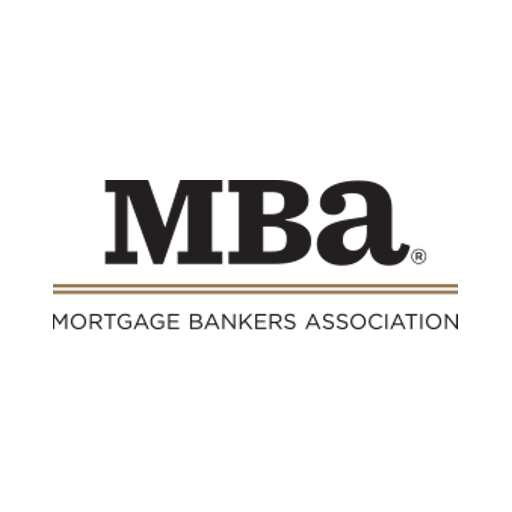
- January 08, 2020
Single-Tenant Net Lease Cap Rates Reach New LowsSingle-tenant net lease cap rates fell across the board in late 2019, reported The Boulder Group, Wilmette, Ill. The sector saw cap rates fall to historic lows in all three sub-sectors: retail, office and industrial. Cap rates in the single-tenant net lease retail sector decreased 14 basis points to 6.07 percent during the fourth quarter while office sector yields decreased six basis points to 6.94 percent. The industrial sector saw a five basis point decrease to 6.90 percent.
Read More

- January 08, 2020
Why Net Lease Will Ride Out the Iran Crisis, US ElectionWhile tensions with Iran dominated the news cycle for the last few days, one observer thinks the US commercial real estate market, specifically net lease properties, should weather the storm.
Read More

- January 08, 2020
Sale-Leaseback Deals Continue to Be Popular With RetailersBed Bath & Beyond Inc. becomes the latest retail company to take advantage of an “asset-light” strategy through a sale-leaseback transaction with Oak Street Real Estate Capital. The deal generated $250 million in net proceeds to help the troubled retailer continue repositioning its brands, including Buy Buy Baby and Harmon drugstores. The properties that were sold to the private equity firm comprise approximately 2.1 million square feet of commercial space including retail stores, a distribution facility and office space.
Read More

- December 18, 2019
Why Net Lease Medical Cap Rates Are CompressingCap rates in the third quarter of 2019 in the single-tenant net lease medical sector decreased by 2 basis points to 6.45 percent when compared to the previous year. The overall net lease market in this time period remained relatively stable, decreasing by only 3 basis points. The supply of net lease medical properties continues to grow as larger hospital systems acquire smaller healthcare groups and one-off physician groups in order to expand their off-campus patient facilities. In the third quarter of 2019, the supply of single tenant medical properties increased by more than 17 percent.
Read More

- December 10, 2019
Single Tenant Medical Properties May Have Bottomed OutThere are more private investors seeking medical assets because they are e-commerce resistant.
Read More

- November 08, 2019
Cap Rates on Walgreens- and CVS-Leased Net Lease Assets Compress in the Third QuarterWith Walgreens looking into potentially going private, it might be time to check on the conditions in the drugstore net lease sector, one of the most popular sectors for investors. While drugstores remain largely in favor as a safe asset class, there were some complicated dynamics happening among the various chains in the third quarter, according to recent market reports. Average cap rates on single-tenant drugstore properties overall remained largely the same as last year (they rose by just 1 basis point, to 6.22 percent in the third quarter), according to The Boulder Group, a Wilmette, Ill.-based net lease brokerage firm. Average cap rates on Walgreens- and CVS-leased properties declined year-over-year, by 9 basis points and 5 basis points respectively, while cap rates on Rite Aid-leased stores went up by 33 basis points during the period.
Read More

- November 07, 2019
The Drug Store Industry Is a “Two-Player Sector”Cap rates for the single tenant drug store sector increased by a single basis point to 6.22% year-over-year in the third quarter of 2019, according to The Boulder Group. The news in the sector wasn’t all cap rate expansion though. Rates for CVS and Walgreens properties experienced decreases of 5 and 9 basis points to 5.6% and 6.06% respectively. Boulder Group President Randy Blankstein says CVS has lower rents and is favored by landlords, which helps explain its popularity among investors. “CVS has done a lot to become the number one player in the sector,” he says. “They have the best credit rating and the biggest market cap because of the acquisitions that they made. I think a lot of people are interested in backing the big player in the space.”
Read More

- November 06, 2019
Clarity Brings Net Lease Buyers Back To Drugstore Market After Tumultuous 2018Not so long ago, net lease investors saw trouble in the drugstore market. Many feared e-commerce providers would gut Walgreens and other well-known brands like they did other brick-and-mortar retailers. And Walgreens’ 2017 acquisition of around 2,000 Rite Aid stores raised the possibility that these outlets would compete with one another and face closure. A failed merger between Rite Aid and Albertsons also increased uncertainty, and transaction volume in the sector fell about 40% over the first three quarters of 2018, according to Wilmette, Illinois-based The Boulder Group. But net lease drugstore buyers are back, and looking for deals. “A lot of those fears were overblown to some extent,” Boulder Group President Randy Blankstein said.
Read More

- November 06, 2019
Under New Leadership, Will McDonald’s Grill Up a New Real Estate Strategy?Steve Easterbrook became president and CEO of McDonald’s Corp. in March 2015, just eight months before the fast-food chain rejected the idea of spinning off its vast real estate holdings into a REIT. But now that Easterbrook has been ousted as the head honcho of McDonald’s, will the country’s No. 1 fast-food chain as measured by revenue revisit the REIT route? Don’t count on it, experts say. It’s about as likely that McDonald’s would launch a REIT spin-off as it would be to spot the new president and CEO, Chris Kempczinski, chowing down on a Burger King or Wendy’s hamburger. “Considering the cap rates for single-tenant assets with the credit profile of McDonald’s, I think it is unlikely for a REIT made up solely of McDonald’s stores to be competitive with returns of other REITs on the market,” says Bethany Babcock, principal of San Antonio-based Foresite Real Estate Inc., which specializes in commercial real estate investment, management and leasing. Babcock’s firm has brokered sales and leases for a number of McDonald’s properties.
Read More

- October 17, 2019
CRE Future Leaders: John FeeneyA senior vice president at The Boulder Group, John Feeney assists clients in the acquisition and disposition of net lease properties. Additionally, as the head of The Boulder Group's research division, he has published over 50 net lease investment research reports.
Read More

- October 15, 2019
Midwest Commercial Hall of Fame: Boulder Group's Jimmy GoodmanEach year, Midwest Real Estate News inducts new members into its Commercial Real Estate Hall of Fame. We are running profiles of these new members each week on REjournals.com. This week, we feature Jimmy Goodman, partner with the Boulder Group in the Chicago suburb of Wilmette, Illinois.
Read More

- October 08, 2019
Fed Keeps Net Lease Cap Rates LowAsking cap rates for all property types—retail, industrial and office—in the single tenant net lease investment sector moved lower for the second consecutive quarter.
Read More

- October 07, 2019
Single-Tenant Net Lease Cap Rates Fall AgainSingle-tenant net lease cap rates fell across the board in the third quarter, reported The Boulder Group, Wilmette, Ill. The sector saw cap rates drop in all three categories in the second quarter as well. Cap rates in the single-tenant net lease retail sector decreased two basis points to 6.21 percent during the third quarter while office sector yields decreased seven basis points to 7.00 percent. The industrial sector saw a four basis point decrease to a record low 6.95 percent "from limited supply and the continued growth of e-commerce," said Boulder Group Senior Vice President John Feeney. "The decrease in cap rates can best be related to the Federal Reserve's monetary policy objectives," Feeney said in Boulder's Third Quarter Net Lease Market Report. "Following the recent rate cut provided by the Federal Reserve in early September, most prognosticators expect one additional cut in the prior to year-end. The current monetary policy has increased the buying power of investors due to favorable cost of capital and debt terms."
Read More

- October 02, 2019
Net Lease Industrial Cap Rates Hit All-Time LowCap rates for the single tenant net lease sector decreased across all three major sectors (retail, office and industrial) in the third quarter of 2019. The retail and office sectors compressed by 2 and 7 basis points to 6.21 percent and 7.00 percent, respectively. Cap rates for single-tenant industrial properties reached an all-time low of 6.95 percent resulting from limited supply and the continued growth of e-commerce. The decrease in cap rates is most likely related to the Federal Reserve’s monetary policy objectives. Following the recent rate cut provided by the Federal Reserve in early September, most prognosticators expect one additional cut in the prior to year-end. The current monetary policy has increased the buying power of investors due to favorable cost of capital and debt terms.
Read More

- October 01, 2019
QSR Cap Rates Reach Record LowsIn many asset classes, it is the large institutions that having been pushing cap rates down to record lows. But that’s not the case for Quick Service Restaurants (QSR). In the first half of 2019, private buyers accounted for more than 80% of QSR properties sold, which is an increase over the last two years, according to the Second Quarter 2019 QSR Net Lease Report by The Boulder Group. “There’s a lot more buyers out there that are in 1031 exchanges or in general at that [low] pricing level,” Jimmy Goodman, partner for The Boulder Group tells GlobeSt.com. “The individual investor will pay a superior price for an individual asset.”
Read More

- September 05, 2019
Cap Rates Drop to Record Low in Net Lease QSR MarketWhile the overall retail net lease market recorded an increase in average cap rates to 6.23 percent in the second quarter, the overall QSR cap rate fell to 5.39 percent, from 5.5 percent in the second quarter of 2018, marking a year-over-year decline in basis points that was nearly double that seen from 2017 to 2018, when the figure dropped 6 basis points. Corporate QSRs recorded the lowest cap rate, just 5.2 percent, with Chick-fil-A and McDonald’s properties pushing the average down, with respective cap rates of 4.05 and 4.08 percent. Franchise QSR cap rates dropped to 5.68 percent, and whereas Taco Bell saw the lowest cap rates of the group at 5.43 percent, Wendy’s franchises logged the sharpest year-over-year decline, a 12 basis-point drop to 5.5 percent. Cap rates dropped for most executive and franchise properties, but there were exceptions: Cap rates for Starbucks stores rose 8 basis points and jumped 17 basis points for Pizza Hut locales.
Read More

- August 29, 2019
Some Big-Box Properties Hold Appeal for Long-Term InvestorsBig-box retail properties across the United States have had a choppy time of it amid the bankruptcy filings of large-sized tenants such as Toys R Us, Sears and Kmart. But some sites are still considered good investments. That's underscored by five properties leased by Art Van Furniture that are now on the market for a combined $56.55 million, a healthy price based on a CoStar analysis of comparable retail properties in respective areas. The properties, located in the Midwest, have long-term, triple-net master leases that call for the expanding Art Van business to be responsible for taxes, insurance and other expenses associated with its occupancy. The properties are owned by STORE Capital, a net-lease real estate investment trust with a name that's an acronym of Single Tenant Operational Real Estate. The company touts its strategy for single-tenant sites as a means of delivering better returns to retailers. Services include maximizing benefits from traditional leases, help in lowering costs, addressing underperforming locations and maximizing after-tax proceeds.
Read More

- August 13, 2019
Dollar Store Sector Continues to Attract Private and 1031 Exchange BuyersThe cap rate for dollar store sector properties (primarily Dollar General, Dollar Tree and Family Dollar) was flat at an average of 7.1% at the end of the second quarter of this year.
Read More

- August 12, 2019
Net Lease Dollar Store Investors Pile Into Larger MarketsCap rates within the single tenant net lease dollar store sector remained unchanged at a 7.1% cap rate, when comparing the second quarter of 2018 to the second quarter of 2019. The dollar store sector is defined as free-standing Dollar General, Dollar Tree and Family Dollar properties for the purpose of this report as these tenants represent the largest presence within the sector. Cap rates for Dollar General were constant at 7.05 percent. Family Dollar cap rates decreased by 6 basis points to 7.25 percent and Dollar Tree cap rates increased by 8 basis points to 7.10 percent.
Read More

- August 08, 2019
Optimism reigns at fifth annual Net Lease Summit — but attendees warned to stick to their knittingAbout 175 commercial real estate and net lease investment professionals from across the country gathered July 25 at the University Club of Chicago for REjournals’ and Midwest Real Estate News’ fifth annual Net Lease Summit. The goal? To take a closer look at where the net lease industry stands at the midpoint of the year. In leading the State of the Market panel and kicking off the event, Randy Blankstein, president and founder of the Boulder Group said, “Extra innings will be a key buzzword of the day as we describe the industry in 2019. The industry continues to outperform expectations and investors maintain their appetite for quality investments.”
Read More

- August 08, 2019
Gauging the Impact of 200 Store ClosuresThe news of the cost-cutting move triggered a fresh round of commentary about the apparent struggles of the retail sector in the U.S. and was quickly followed by the revelation that Yum! Brands, the parent company of Pizza Hut, planned to close about 500 of its underperforming restaurants across the country. But real estate experts that spoke with Commercial Property Executive were far from shaken by the information. “I think the 200 is fairly insignificant in the grand scheme of things,” said John Feeney, senior vice president at boutique real estate investment firm The Boulder Group. “Who it is significant for is the owners of those locations, people who bought these deals as net-lease properties, and now they’re going to be in a position where they have to either backfill or reposition the asset.”
Read More

- August 05, 2019
Dollar Stores Remain in Demand with Net Lease InvestorsNet lease investors continue to show a strong preference for dollar store-occupied properties, data for the second quarter of 2019 shows. Cap rates on these types of assets remained unchanged from a year-ago period, at an average of 7.1 percent, according to research from The Boulder Group, an Wilmette, Ill.-based net lease brokerage firm. What’s more, they were on average 87 basis points lower than cap rates on retail net lease assets overall.
Read More

- August 01, 2019
Dollar Stores Hold Steady In Midst Of Retail PlungeInternet competition has eviscerated portions of the retail sector, but many dollar store brands keep expanding, and investor interest remains steady. The overall second quarter asking cap rate for dollar stores was 7.1%, unchanged compared to the same period in 2018, according to the latest Net Lease Dollar Store report by The Boulder Group. “The stability of the sector can be attributed to the majority of the supply of listed properties being new construction as the sector continues to develop stores at a rapid pace,” The Boulder Group President Randy Blankstein said. Read more at: https://www.bisnow.com/chicago/news/retail/dollar-stores-hold-steady-in-midst-of-retail-plunge-100180?utm_source=outbound_pub_50&utm_campaign=outbound_issue_31014&utm_content=link_text&utm_medium=email?utm_source=CopyShare&utm_medium=Browser
Read More

- July 26, 2019
Net Lease Investors Hungry for Casual DiningJust as low interest rates are encouraging buyers, low cap rates are enticing sellers. During the third and fourth quarters of 2018, most investors saw cap rates flat or down. “Every time cap rates go down, there’s a new group of sellers entering the market,” said Boulder Group president Randy Blankstein, predicting larger net-lease transaction volume this year than last. Declining Treasury rates, meanwhile, “could pull some sellers off the sidelines,” Hipp observed. Investors are also coming off the sidelines. This includes REITs, which are under pressure to spend their dry powder.
Read More

- July 10, 2019
Recent Fed Reserve Policy Changes Bolstering Net Lease Investment MarketThe Boulder Group reports that the recent policy changes by the Federal Reserve have sparked renewed optimism among net lease property investors based on decreasing cap rates, and the narrowing bid-ask spread in the asset class.
Read More

- July 09, 2019
Thank the Fed for net lease market's roll? At least partiallyNet lease property investors are optimistic today. And part of the reason? You can credit the Federal Reserve. The second quarter Net Least Market Report recently released by Wilmette, Illinois-based The Boulder Group, points to lower-than-expected interest rates as one reason why the net lease market continues to thrive across the country. You can learn even more about the net lease market during REjournals’ and Midwest Real Estate News’ Net Lease Summit held July 25 at the University Club of Chicago in Chicago. The event, which runs from 8:15 a.m. until 3:30 p.m., brings the biggest names in the net lease, sale leaseback and 1031 Exchange markets, all ready to share their thoughts on the strength of this commercial segment. The Federal Reserve boosted interest rates three times after 2018. But now it’s expected that the Fed will cut its interest rate at its upcoming July meeting. As The Boulder Group reports, prognosticators expect that the Fed will cut its rate at least one more time in the near future.
Read More

- July 08, 2019
Interest rate surprises and surging restaurants fuel net lease marketThe quality of tenant and the length of the lease. That’s what investors are looking for when sinking their dollars into net lease retail properties. This makes sense. The retail sector continues to face challenges from ecommerce. The old brands that once dominated are struggling. The ones that are surviving are those that have found a way to combine bricks-and-mortar locations with a strong online presence or who offer consumers something that they can’t find online. That is one of the big takeaways from the second quarter Net Lease Market Report recently released by Wilmette, Illinois-based The Boulder Group. You can hear the president of The Boulder Group, Randy Blankstein, share his insights on the net lease market during REjournals’ and Midwest Real Estate News’ Net Lease Summit held July 25 at the University Club of Chicago in Chicago. The event, which runs from 8:15 a.m. until 3:30 p.m., brings the biggest names in the net lease, sale leaseback and 1031 Exchange markets, all ready to share their thoughts on the strength of this commercial segment.
Read More

- June 21, 2019
Property Investors Increasingly Prefer the Flavor of Fast-Casual RestaurantsSit-down, full-service restaurant chains continue to face pressure from fast-casual competitors, and not just in the competition to woo diners. Investors also appear to be losing some of their appetite for real estate leased to the national “casual dining” chains such as Hooters, Outback Steakhouse, Red Lobster, Chili’s and Texas Roadhouse. Cap rates, the annual yield for the real estate, jumped up in the first quarter for so-called “net lease” properties tied to casual dining restaurants. According to a report from Wilmette, Illinois-based real estate firm The Boulder Group, “cap rates in the net lease casual dining sector increased to 6.32%” in the first quarter, up from 6.05% a year ago. The firm noted that the rate of increase was wider than other types of net lease investment properties.
Read More

- June 19, 2019
Sale Leasebacks Drive Up Supply in Net Lease Casual Dining SectorCap rates in the net lease casual dining sector increased to 6.32 percent representing a 27 basis point increase in the first quarter of 2019 when compared to the first quarter of 2018. Casual dining properties with corporately guaranteed leases generated cap rates of 6.15 percent, while franchisee leased properties were priced at 6.85 percent. Both corporate and franchisee guaranteed leases experienced increases of 25 and 35 basis points respectively over the past year. Cap rates for casual dining properties leased to franchisees will vary depending on the strength of the guarantor. The primary contributing factor to the increase in cap rates for the first quarter of 2019 was the result of a significant increase of property supply in excess of 30 percent when compared to the first quarter of 2018. This increase was largely driven by corporate operators executing large sale leaseback transactions and some institutional owners reducing individual tenant exposure within their portfolios.
Read More

- May 16, 2019
Casual Dining May Provide Protection From E-Commerce, But It's Also Hitting Some HeadwindsCasual dining restaurants became an important part of many real estate investment portfolios in the post-recession era, and although that is likely to remain true for the foreseeable future, a few headwinds have started blowing. Restaurant concepts that once were fresh and daring have been affected by the rise of Grubhub and other online delivery services, while others need to work harder at keeping up with the ever-changing tastes of millennials.
Read More

- May 08, 2019
Mergers, Online Banking Lead to Decline in US Bank Branch DealsInvestors who own land holding bank branches are getting spooked by further closings as more banks merge and mobile banking increases in popularity. According to a new report from the Wilmette, Illinois-based The Boulder Group, nervous investors have been pulling back, noting that the number of single-tenant bank branches trading hands last year dropped 9% from the year prior. In the first quarter of this year, yields, or the return on investment known as cap rates, rose from 4.84% to 5.30%.
Read More

- May 02, 2019
Federal Reserve’s Interest Rate Hike Slowdown Leads to Uptick in Net Lease Sales ActivityThe projected slowdown in 2019 of rising interest rates by the Federal Reserve is having an impact on the general sentiment of the net lease investment market as well as overall activity levels, according to the Q1 Net Lease Market Report issued by Chicago-based The Boulder Group.
Read More

- April 24, 2019
Cap Rates in the Net Lease Sector Continue to Inch UpCap rates in the single-tenant net lease sector continued to go up slightly in the first three months of the year, according to the most recent report from The Boulder Group, an Oak Brook, Ill.-based net lease brokerage firm. Cap rates on net lease retail properties rose by 2 basis points in the first quarter, to 6.37 percent, according to the firm’s research. Cap rates on net lease office assets went up by 8 basis points, to 7.1 percent.
Read More

- April 17, 2019
Boulder Group: Interest rate slowdown a boon for net lease marketExpect a boost in net lease sales throughout the rest of the year if the Federal Reserve follows through on its plans to slow interest rate hikes. Chicago-based The Boulder Group released its first quarter Net Lease Market report earlier this month. And the report contains plenty of good news for the industry. The company’s Cap Rate Prediction Poll found that only 29 percent of investors expect a cap rate increase of at least 25 basis points by the end of 2019. That’s a big drop from the fourth quarter poll of 2018, when 62 percent of investors predicted that big of a cap rate hike. According to The Boulder Group’s first quarter research, 39 percent of poll participants expect cap rates to remain unchanged or fall in 2019. Again, this is a big hike; Only 5 percent said the same at the end of 2018.
Read More

- April 09, 2019
Net Lease Chasing YieldE-commerce is not going away. So, Jimmy Goodman, a partner at the Boulder Group, moderating the “State of the Industry” panel at GlobeSt.com’s annual Net Lease Conference asked experts how is it affecting their strategies?
Read More

- April 03, 2019
Certainty Returns to Net LeaseCap rates in the single tenant net lease retail sector increased slightly by 2 basis points to 6.27 percent in the first quarter of 2019 when compared to the prior quarter. Cap rates for the office sector increased by 8 basis points to 7.10 percent while the industrial sector experienced a decrease of 7 basis points to 7.00 percent. Net lease transaction volume in 2018 finished in excess of $62 billion, which was a 9 percent increase when compared to the prior year according to CoStar. During the first quarter of 2019, the capital markets have shifted to favor sellers in terms of the net lease asset pricing. In 2018, net lease investors expected the Federal Reserve to continue raising rates in 2019, causing a pause for some investors. However, recently the Federal Reserve has signaled stable rates to the market in 2019. This caused the 10-year Treasury yield to maintain a level between 2.40 percent and 2.70 percent throughout the first quarter after breaking the 3.00 percent level in 2018. The movement in interest rates has resulted in more favorable borrowing costs and investment returns for buyers of net lease.
Read More

- March 27, 2019
Top Broker Honorees: Randy Blankstein and Jimmy GoodmanFounded in 1997 and based in Wilmette, IL, the Boulder Group is a boutique services firm that specializes in single-tenant net lease properties. Serving buyers and sellers that range from individual investors and family offices to institutional ownership groups and Fortune 500 companies and retailers, the company has been able to drive significant value for its clients who look for sale leaseback advisory services or matters requiring complicated structures. 2018 was a record year for the Boulder Group, with transaction volume up 36% from 2017. The duo of president Randy Blankstein and partner Jimmy Goodman completed 121 transactions totaling $527 million during the year. Among other accomplishments, they facilitated the marketing process for a portfolio of single-tenant grocery stores for one-off acquisitions totaling more than $100 million.
Read More

- March 04, 2019
Tesla Store Closings Could Take Charge Out of Market for the PropertiesElon Musk, chief executive officer of luxury electric car maker Tesla, surprised many last week when he announced that Tesla would shut dealerships and shift sales to online only. In making that decision, Musk may have taken the charge out of a burgeoning market for net lease real estate that houses the dealerships and service centers. “The market for these properties is going to be dead until there’s more transparency on what’s actually going to be closed,” said Randy Blankstein, president of Wilmette, Illinois-based net lease firm The Boulder Group.
Read More

- February 28, 2019
Net Lease Trends 2019, Part 1: CRE’s Safest PlayThe net lease investment sector is continuing to ride a wave of strong liquidity that is fueling robust transaction volume and steady cap rates and that momentum is likely to stay the course in the coming year., according to NREI’s latest exclusive research into the sector. Despite an uptick in interest rates over the past year and a strong view that the commercial real estate market cycle is at its peak, a majority of respondents still see healthy flows of capital targeting net lease assets. Nearly two-thirds of respondents rated the availability of both equity and debt as the same or better than it was 12 months ago. That liquidity is supporting an active buying market. According to Real Capital Analytics, single tenant property sales (including office, industrial and retail properties) rose 11.4 percent in 2018 to $65.4 billion.
Read More

- February 12, 2019
Commercial Real Estate Hall of Fame: The Boulder Group's Randy BlanksteinEach year, Midwest Real Estate News elects a new class to its Midwest Commercial Real Estate Hall of Fame. Our 2018 class has just been announced, and copies of that issue have been sent. But before we start running those profiles online, we are highlighting the careers of the CRE pros who were selected for our 2017 Hall of Fame class. This week, we look at the successful career of Randy Blankstein, president of The Boulder Group in the Chicago suburb or Northbrook, Illinois.
Read More

- February 05, 2019
Single-Tenant Big Box Cap Rates Jump in Fourth QuarterCap rates in the single tenant net lease big box sector increased by 29 basis points, to 7.04% from the fourth quarter of 2017 to the fourth quarter of 2018, according to The Boulder Group, a Wilmette, IL-based boutique investment firm specializing in single tenant net lease properties.
Read More

- January 31, 2019
Jewel-Oscos Continue To Draw BuyersJewel-Osco seems to be the hot grocery store brand for investors right now. The Boulder Group, a Wilmette, Illinois-based firm, recently completed the sale of a single-tenant net leased Jewel-Osco at 16625 West 159th St., in suburban Lockport, for $13M. It wasn't the first Jewel-Osco sold by Boulder this year. The company also just completed the sale of one at 1660 Larking Ave. in Elgin for $14.8M. In addition, earlier this year, RREEF Property Trust, the daily net asset value REIT of Germany’s DWS Group, acquired Elston Plaza, a Jewel-Osco-anchored property at the intersection of Addison, Elston and Kedzie avenues. “The market for stand-alone grocery properties remains active due to their built-in customer base,” The Boulder Group President Randy Blankstein said. The Lockport building has 67K SF and sits on a 10.3-acre parcel along the town's primary thoroughfare. Blankstein and Boulder partner Jimmy Goodman represented the seller, a private investment company, in the transaction. The buyer is a private investor in a 1031 exchange.
Read More

- January 09, 2019
Net Lease Investors Expect Rising Cap Rates in 2019Cap rates in the single tenant net lease retail sector remained unchanged (6.25 percent) in the fourth quarter of 2018 when compared to the prior quarter. Cap rates for the office and industrial sectors increased by 2 and 5 basis points respectively. As the Federal Reserve continues to implement its monetary policy, there is investor expectation that cap rates should trend upward in 2019. The majority of property owners believe we are in the last stages of the current real estate cycle. Accordingly, property owners are supplying the current market with their non-core net lease holdings in order to take advantage of the historically low cap rate environment. In the fourth quarter of 2018, the net lease sector experienced an increase in supply of approximately 7 percent.
Read More

- January 04, 2019
Net Lease Retail Cap Rates Flatten in Q4, Rise for the YearCap rates in the single tenant net lease retail sector were flat in the fourth quarter of 2018 compared to the previous quarter, but 95 percent of active net lease participants expect cap rates to rise in 2019. Nearly half predict cap rates will increase between 25 and 49 basis points by the end of the year, according to a new report by The Boulder Group.
Read More

- January 04, 2019
Net Lease Cap Rates for Retail Flatten in Q4After three successive quarterly increases, retail net lease cap rates were flat in 4Q 2018, ending the year at 6.25 percent, according to a new report from Wilmette, IL-based The Boulder Group.
Read More

- December 20, 2018
The Retail Net Lease Sector Begins to Show Slights Signs of WearCap rates for retail net lease properties continued ticking upward in the third quarter of 2018, but only slightly. The average cap rate for single-tenant net lease assets in the retail sector increased by 5 basis points to 6.25 percent, according to the Third Quarter 2018 Net Lease Report from the Boulder Group, a national commercial real estate firm that focuses on the net lease sector. However, that’s the third consecutive quarter of cap rate increases for the sector. In the second quarter, cap rates finally pushed upward to 6.2 percent—the biggest increase in seven years.
Read More

- December 03, 2018
Acquisition Yields Rise for Single-Tenant Medical AssetsIn the third quarter of 2018, single-tenant net lease medical properties recorded a 22-basis-point year-over-year increase in cap rates, according to The Boulder Group’s latest Medical Sector Net Lease Report. The cap rate for single-tenant net lease medical properties priced below $10 million went from 6.25 percent in the third quarter of 2017 to 6.47 in the third quarter of 2018. The source of the increase is the rise of for-sale properties fitting a certain profile. “Investors continue to demand new construction medical assets as a primary acquisition target, which leads sellers of lower quality assets to add supply to the market,” Jimmy Goodman, partner with The Boulder Group, told Commercial Property Executive. “Lower quality assets are considered shorter term leased properties, [properties with] tenants with a lack of credit and properties located in secondary markets.” Non-investment grade tenants accounted for 75 percent of the net lease medical sector in the third quarter, per the report.
Read More

- November 07, 2018
Why Is Drugstore Transaction Volume Plunging?Cap rates for the single-tenant drugstore sector increased by 11 basis points in the third quarter of 2018 to 6.21 percent over last year. Cap rates for CVS properties remained unchanged, at 5.65 percent, while Walgreens and Rite Aid properties experienced increases of 15 and 7 basis points to 6.15 percent and 7.32 percent, respectively. The increase in cap rates experienced by Walgreens and Rite Aid properties can be best attributed to uncertainty surrounding Rite Aid’s long-term viability and the store closures associated with Walgreens’ acquisition of approximately 1,900 Rite Aid locations. Transaction volume in the drugstore sector slowed significantly in the first three quarters of 2018 and was down more than 40 percent as compared to each individual year between 2013 and 2017. Recent events in the drugstore sector— including the pending CVS and Aetna merger, Walgreens acquisition of approximately 1,900 Rite Aid stores and the failed merger between Rite Aid and Albertsons—caused concern for investors. The spread between asking and closed cap rates for drugstores widened for all three tenants in the third quarter of 2018 as compared to the prior year. This illustrates pushback sellers are receiving for drugstore valuations from net-lease investors.
Read More

- November 07, 2018
Investors Continue Going After Chicagoland GroceriesGrocery stores throughout Chicagoland are getting looks from national and international investors. A single tenant net leased Jewel-Osco property located at 4650 W. 103rd St., Oak Lawn, IL, just became the latest such outlet to change hands after a high net worth investor from Australia bought the 47,370 square foot building for $16 million. Randy Blankstein and Jimmy Goodman of The Boulder Group, a Wilmette, IL-based net leased investment brokerage firm represented the seller and the buyer in the transaction. The seller is a private real estate investment company based in the southwest. “The market for standalone grocery properties remains active due to their built-in customer base,” says Blankstein, president of Boulder. Goodman, a partner, adds, “investors pay a premium for twenty year net leased assets which are in limited supply.”
Read More

- October 12, 2018
Prospective tenants, rivals weigh up soon-to-close Mattress Firm locationsThe Houston-based firm, which filed for Chapter 11 bankruptcy protection in Delaware last week, says it is targeting locations that are underperforming or in close proximity to other Mattress Firm stores. The company has petitioned the court to reject some 200 store leases and says it anticipates closing those by Oct. 31. That would save about $2.8 million per month, according to the court filings. Those stores are located in about 30 of the 49 states in which the retailer operates — nearly 90 of them are in Illinois, North Carolina and Texas.
Read More

- October 08, 2018
Single-Tenant Net Lease Retail Cap Rates Rise With Interest RatesCap rates for the single-tenant net lease retail sector increased by five basis points in the third quarter to 6.25 percent, reported Boulder Group, Northbrook, Ill. "This represented the third consecutive quarter of increased cap rates for the single-tenant retail sector," said Boulder Group Senior Vice President John Feeney. "The upward trend of cap rates should remain as the Federal Reserve continues to implement its monetary policy objectives." Marcus & Millichap, Calabasas, Calif., agreed the single-tenant net lease retail sector could be "substantively impacted" by the Fed's interest rate increases because these assets typically respond strongly to the 10-year Treasury rate. "This will coalesce with other components such as brand, location and lease terms when determining going-in cap rates," the firm's Net Lease Retail Report said. "For example, dollar store yields can vastly differ as a number of these assets are in rural locations, providing potential for higher returns. Conversely, yields for convenience stores and quick-service restaurants typically maintain a much smaller range due to their tempered sensitivity to key determinants of cap rates."
Read More

- October 03, 2018
Treasury Rates Rise, But Cap Rates Hold SteadyThe recent increase in the 10-year treasury rate was expected by many to push up cap rates in the nation’s single tenant net lease market, but so far, things are relatively quiet. Cap rates for the net lease retail sector only increased by five bps in the third quarter of 2018, according to a new report from Wilmette, IL-based Boulder Group. Rates in the office and industrial sectors were also largely steady.
Read More

- October 03, 2018
Net Lease Retail, Office Cap Rates Up, Industrial DownCap rates for the single tenant net lease retail sector increased by 5 basis points in the third quarter, marking the third consecutive quarter increase and its highest levels since the fourth quarter of 2015. Asking cap rates also increased for the net lease office sector by 5 basis points but decreased for the industrial sector by 2 basis points, according to the Third Quarter 2018 Net Lease Report from The Boulder Group. “Demand for net lease properties has remained strong throughout the year. The biggest surprise is that cap rates were relatively stable as the majority of investors expected cap rates to rise across the board by a more significant number,” Randy Blankstein, president of The Boulder Group, said in a prepared statement.
Read More

- September 25, 2018
Beyond The Bio: 16 Questions With The Boulder Group Founder And President Randy BlanksteinRandy Blankstein was 27 when he founded The Boulder Group in 1997. More than two decades later, his Illinois-based real estate firm is one of the 10 largest brokers of single-tenant net lease deals in the U.S., according to Real Capital Analytics. The Boulder Group has closed over $4B worth of deals, and it is marketing properties in at least 15 states. It also has a research arm that puts out reports on the net lease market. An Illinois native, Blankstein received his bachelor's degree from the University of Colorado at Boulder's Leeds School of Business in 1991. In addition to leading his company, Blankstein also serves as the chair of the Net Lease Summit Conference and co-chair of the IREI Triple Net Investor Strategies Conference.
Read More

- September 12, 2018
1031 Buyers Retain a Strong Appetite for Fast FoodConsumer tastes may be shifting to healthier fare with organic, sustainable and farm-to-table choices, but the flavor of the month for 1031 exchange investors remains firmly focused on quick service staples that include the likes of McDonald’s, KFC and Dunkin Donuts. The net lease quick service restaurant (QSR) investment sales market continues to do well, because it fits everyone’s favorite buzz word of the moment—e-commerce resistant, says Randy Blankstein, president of The Boulder Group, a net lease real estate consulting firm. “QSRs are more popular now than five or 10 years ago when people viewed them as specialized properties,” he says. There is abundant capital chasing top brands, such as McDonald’s, Chick-fil-A and Chipotle, “A” credit brands and top locations that sell quickly. “As you get a little bit further down the list of smaller franchisees and secondary and tertiary markets, and smaller brands, demand gets a little lighter. But overall, the sector is fairly healthy,” says Blankstein. During the first half of 2018, QSR transactions surpassed $1 billion, an increase of more than 10 percent year-over-year, according to The Boulder Group. That buyer demand is keeping pressure on cap rates. Bap rates on all QSRs declined a slim 6 basis points to 5.5 percent in the second quarter and dipped 11 basis points to 5.24 percent for corporate leased QSR properties, according to The Boulder Group.
Read More

- September 05, 2018
Private Buyers Dominate Net Lease QSR SectorCap rates in the net lease quick service restaurant (QSR) sector declined to 5.50 percent in the second quarter of 2018 representing a 6 basis point decline when compared to the prior year. Cap rates for corporate-leased QSR properties decreased by 11 basis points to a 5.24 percent cap rate, while QSR properties leased to franchisees declined by 4 basis points to a 5.71 percent cap rate. The QSR sector continues to be a popular trade target for 1031 investors as it is e-commerce resistant. Investors gravitate to the QSR market as it offers lower price point properties that typically exhibit scheduled rental increases throughout the lease duration. Furthermore, the vast majority of QSR tenants provide transparency into store operations via store sales reporting or property level profit and loss statements which can be appealing to investors.
Read More

- September 05, 2018
QSR Sector Now "Sweet Spot" for Private InvestorsE-commerce resistant quick serve restaurants remain a popular investment vehicle as cap rates continue to compress, the “premium” paid for this retail sector increases further, and the 2018 mid-year level of activity was higher than the same period one year ago, according to the 2018 Net Lease QSR Market Report, published by Wilmette, IL-based The Boulder Group.
Read More

- August 27, 2018
Grocery Stores Remain a Hot CommodityNo matter what troubles shake the retail world, investors jump at the chance to pick up grocery stores, especially ones in relatively affluent areas. The Boulder Group, a net leased investment brokerage firm, recently completed the sale of a single tenant net leased Jewel-Osco property located at 199 Brook Forest Ave., in suburban Shorewood, for $13.15 million.
Read More

- August 03, 2018
Institutional Buyers Hit Pause On Dollar StoresDollar stores remain one of the few portions of the retail sector impervious to e-commerce, and that attracts both developers and investors. But after several years of energetic buying, institutional investors have backed off, according to The Boulder Group’s new report on the net lease dollar store sector. The pause should open up opportunities for others, especially since builders have maintained a robust pace of new construction.
Read More

- August 02, 2018
Dollar Stores See Rising Cap RatesAverage cap rates in the net lease market’s dollar store sector increased by 35 basis points year-over-year, to 7.10 percent, according to the second-quarter Net Lease Dollar Store Report from The Boulder Group. The report focuses on free-standing Dollar General, Family Dollar and Dollar Tree stores. The three chains total about 29,600 stores across the country.
Read More

- July 31, 2018
REJournals' Net Lease Summit: More than 180 look to the future of this sectorMore than 180 of commercial real estate’s busiest professionals from around the country gathered at the University Club of Chicago July 26 for REJournals’ and Midwest Real Estate News’ Fourth Annual Net Lease Summit. The message of the day was a simple one: The net lease market faces both challenge and change. But the market is also a busy one. And no one was predicting a slowdown in leases, sales or development in the near future. Panelists and speakers, then, looked to the future with hope. They expect changes in the market. But the net lease space is still a welcoming one for brokers, developers and investors, they said. Randy Blankstein, president and founder of The Boulder Group, moderated the State of the Market panel. Some of the most notable topics of discussion debated by the panel included where we are in the overall investment cycle and how that will impact net lease properties; the trend of users committing to shorter lease terms; the effect ecommerce is having on net lease retail and industrial properties; and what the end of the cycle will look like.
Read More

- July 25, 2018
Amazon’s drug bet puts spotlight on conventional pharmaciesIn a panic over Amazon.com’s plan to buy upstart online pharmacy PillPack, shareholders drove down the aggregate market value of CVS Health, Walgreens Boots Alliance and Rite Aid in late June by about $11 billion. Retail real estate professionals and at least one executive from these drugstore brands have displayed a bit more poise. “I don’t think it’s any surprise that Amazon wants to get into the pharmacy space,” said Randy Blankstein, president of The Boulder Group, a net-lease brokerage based in Wilmette, Ill. “But it’s step one for Amazon, and I think people are questioning what steps two and three are going to be as they get in and learn the business.”
Read More

- July 12, 2018
The Net Lease Retail Market Is Showing a Shift, with Higher Cap Rates and More ListingsThe average retail cap rate for net lease properties during the second quarter of 2018 reached 6.2 percent, an increase of 10 basis points from first quarter, according to Second Quarter National Net Lease Report from the Boulder Group, a national net lease commercial real estate firm. The last time the rate increased that much was in the second quarter of 2011. In addition, the Boulder Group reports that the number of retail properties listed has increased, as sellers look to sell assets before cap rates increase further. The number rose by more than 13.6 percent, to 4,216 properties nationally. Investment sales volume in the single-tenant retail category was just shy of $3.2 billion in the first quarter of 2018, according to the Stan Johnson Co., a brokerage firm specializing in the single-tenant net lease sector. (The firm’s second quarter report is due out later this month.)
Read More

- July 11, 2018
Single-Tenant Net Lease Cap Rates DivergeSingle-tenant net lease property cap rate changes varied significantly by sector in the second quarter, new reports said. Retail sector single-tenant net lease cap rates increased 10 basis points during the quarter, representing the sector's largest cap rate increase since second quarter 2011. But cap rates compressed for the office and industrial sector by 5 and 25 basis points respectively, said John Feeney, Senior Vice President with Boulder Group, Northbrook, Ill. "The primary sentiment among net lease investors is that cap rates should remain relatively stable and within the range of the past few years across all three asset classes," Feeney said. "Investors will be carefully monitoring the monetary policy decisions of the Federal Reserve as well as the capital markets effect on pricing." NNNetAdvisors, Los Angeles, said the sector's most notable trend was the spread between cap rates and treasury rates, which reached a post-recession low 3.22 percent during the quarter. "This measurement is important, as it is a general indicator of returns that investors can achieve when implementing debt on an acquisition," the firm's Net Lease Property Report said. The measure typically follows the movement of cap rates because most debt takes 60 days from rate lock to close. "Investors continue to weigh their increased cost of capital and push for more yield in cap as they underwrite and pursue future acquisitions," the report said.
Read More

- July 03, 2018
More Net Lease Properties Hitting The MarketThe change in net lease property cap rates during the second quarter showed mixed results, with retail cap rates experiencing their greatest quarterly increase since 2011, while office and industrial rates compressed. According to The Boulder Group’s Second Quarter National Net Lease Report, the number of properties listed also increased significantly, as sellers look to sell assets before cap rates increase further.
Read More

- July 02, 2018
Net Lease Market Strikes EquilibriumCap rates for the single-tenant net lease retail sector rose by 10 basis points in the second quarter of 2018, representing the largest such increase since the second quarter of 2011. Cap rates compressed for the office and industrial sector by 5 and 25 basis points, respectively. The upward trend in cap rates should persist as the Federal Reserve continues to implement its monetary policy objectives. As investors expect increased cap rate pressure to remain, the supply of single-tenant net lease properties on the market continues to increase, too. Owners of single-tenant properties are bringing those assets to market in an attempt to maximize value before cap rates increase further. In the second quarter of 2018, the net lease sector experienced an uptick in supply of more than 11 percent, with the majority coming from net lease retail properties.
Read More

- May 15, 2018
Casual Dining Making Millennial-Focused AdjustmentsMillennials have disrupted the office sector with their preferences for open collaborative environments, but they are also disrupting the world of restaurants with their preferences for healthy food and more home delivery. As a result, investors in the net lease casual dining sector have grown a bit more cautious, and the most sought-after brands are the ones that have adjusted to the times.
Read More

- May 02, 2018
Net Lease Bank Investors Turn SelectiveCap rates for the single-tenant bank ground-lease sector increased by 21 basis points (bps) to 4.84 percent in the first quarter of 2018, compared to one year ago. At the same time, the supply of bank ground leases on the market decreased by 18 percent. While bank ground-lease cap rates were on the rise this past year, the cap rates for the overall net lease retail sector compressed by 9 bps. Accordingly, the significant cap rate premium historically associated with the bank ground-lease sector compressed to 136 bps from 156 bps. For the purpose of this report, the bank ground-lease sector comprises both national and regional banks, regardless of credit.
Read More

- April 13, 2018
Supply of top-quality net-lease properties tighteningInvestors are still clamoring for newly built, freestanding retail properties with long-term leases to national credit tenants, but the supply of such assets tightened in the first quarter, according to brokerage firm The Boulder Group. The national median spread between asking cap rate and closed cap rate for single-tenant, net-lease retail properties was 26 basis points in the first quarter, up by three points from the previous quarter, the firm reports. Roughly 3,800 such properties were on the market during the first quarter, down by 2.9 percent from the fourth quarter. Net-lease property investors are most interested in tenants they perceive to be e-commerce-resistant and experiential, according to John Feeney, a Boulder Group senior vice president. Among these are "medtail" (medical facilities in locations traditionally used for retail), food, fitness, entertainment and convenience tenants, Feeney says. The supply of high-quality assets remains limited, however, especially for properties valued at greater than $7 million. Most of the newly constructed supply in the net-lease space, Feeney says, remains fairly dense with dollar store, quick-serve restaurant and medtail tenants.
Read More
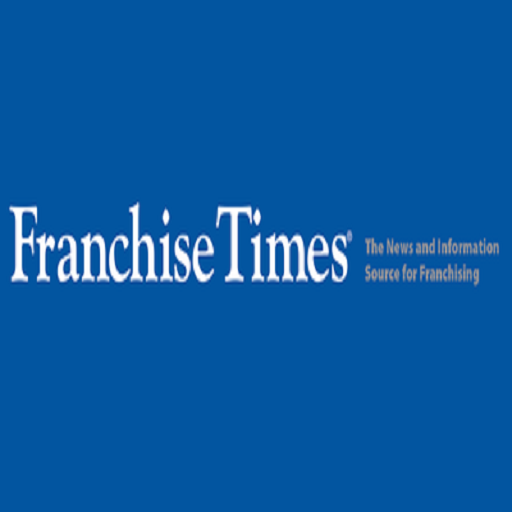
- April 03, 2018
Rising interest rates fuel sale-leasebacksOperators considering doing a sale-leaseback of property to raise capital may want to act quickly in order to capitalize on what could be peak pricing. Investors continue to exhibit a healthy appetite to buy sale-leaseback properties, but it is not as much of a frenzy as was the case a couple of years ago, notes Gary Chou, first vice president & senior director at Matthews Real Estate Investment Services. Pricing has remained stable for the best quality properties, locations and top brands. However, sale prices have started to slip for lesser quality deals as buyers become more selective. Investors are gravitating toward best-in-class brands and locations, as well as stores that have a proven track record of generating sales. “I think people are moving up on the quality scale of what they are willing to buy at this stage compared to where they were a few years ago,” agrees Randy Blankstein, president of The Boulder Group, a firm that specializes in single tenant, triple net lease property sales. It is becoming more difficult to do second-tier brands and locations with no proven sales, he says.
Read More

- April 03, 2018
Net Lease Market Holding SteadyAfter a few years of decline, cap rates for the single tenant net lease sector stabilized in 2017, and so far, have remained relatively stable in 2018. In the first quarter, the rates increased for the retail and industrial sectors by just three bps and four bps respectively, according to a new study by the Boulder Group, a net lease firm in Northbrook, IL. Cap rates for net lease office properties remained unchanged. Net lease transaction volume also remained steady, and in 2017 finished at $54 billion which was similar to 2016, according to CoStar.
Read More

- March 07, 2018
Net Lease Auto Parts Sector Faces DisruptionCap rates for the single-tenant net leased auto parts store sector increased by 29 basis points (bps) from the fourth quarter of 2016 to the fourth quarter of 2017 to 6.19 percent, largely driven by the change in market supply of auto parts stores and the continued disruption Amazon has brought to this sector. During the same period, the overall net lease retail market compressed by 12 bps. The auto parts sector, for the purpose of this report, is defined as Advance Auto Parts, AutoZone and O’Reilly Auto Parts, as they account for the highest percentage of single-tenant transactions of properties occupied by auto parts retailers.
Read More

- March 01, 2018
Net Lease Research 2018, Part 1: Investors Continue to Expect StabilityThe single-tenant net lease sector is a bedrock of commercial real estate investment. Bulwarked with long-term leases to stable tenants, the sector is always a popular bet for a variety of commercial real estate investors. And all signs point to the sector remaining in solid shape for the foreseeable future, even in what many are viewing as the late stages of the current real estate cycle, at least according to the results of NREI’s most recent exclusive research into the sector.
Read More

- February 05, 2018
Cap Rates Rise For Big Box RetailThe long-term slide of cap rates for single tenant net lease properties began to reverse within the past year or so, and that’s especially true of the big box sector. Cap rates for these properties increased by 25 bps to 6.75% from the fourth quarter of 2016 to the fourth quarter of 2017, according to a new report from the Boulder Group, a net lease firm in suburban Chicago.
Read More

- January 25, 2018
Should Net Lease Investors Worry About Convenience Store Tenants?In 2018, net lease investors can expect middling performance from convenience stores. Recent estimates suggest that convenience stores will achieve total sales of about $73 billion in 2018—on the lower end of the spectrum for this sub-sector—and total sales growth of just 5.5 percent, according to the “Retail, Apparel and Restaurants—U.S., 2018 Outlook,” from Moody’s Investors Service. Convenience stores are staple assets in the portfolios of net lease and 1031-exchange investors. Cap rates for properties occupied by high-quality tenants, such as 7-Eleven, have achieved cap rates between high 4 percent and low 5 percent in the fourth quarter of 2017. According to data from The Boulder Group, a net lease commercial real estate services firm, retail net lease assets overall reached the average asking cap rate of 6.07 percent during the quarter.
Read More

- January 08, 2018
What Do Single-Tenant Net Lease Deals Offer High-Net-Worth Investors?For more and more high-net-worth (HNW) real estate investors, dollar stores and drugstores make for a winning combination, although these assets can turn into losers if the sole tenant leaves. Office and hotels still draw a lot of attention—and dollars—from HNW investors. But a rising number of them are betting on single-tenant net lease properties such as dollar stores, drugstores and fast-food restaurants to help round out their portfolios.
Read More

- January 03, 2018
Net Lease Cap Rates Headed Up In 2018Cap rates in the net lease market went on a long-term slide for several years as the economy recovered from the recession, with single tenant retail properties experiencing an especially steep drop. But the rates for all property types stabilized about 18 months ago, and signs now point to likely increases in the coming year. In a recent national survey conducted by The Boulder Group, a Northbrook, IL-based net lease firm, the vast majority of active net lease participants expect cap rates to rise in 2018. According to 39% of the respondents, rates will increase between 25 and 49 bps by the end of 2018, and another 22% say rates will go up by more than 50 bps. Just 9% think rates will move down.
Read More

- January 03, 2018
Net Lease to Remain Active in 2018Cap rates in the fourth quarter of 2017 for the single-tenant net lease retail sector reached a new historic low rate of 6.07 percent. During the same time period, cap rates for the office sector increased by 2 basis points to 7.00 percent and cap rates for the industrial sector decreased by 2 basis points to 7.25 percent. Cap rates in the fourth quarter of 2017 represented the lowest point of the year for all three sectors.
Read More

- December 29, 2017
Quick-Service Restaurants Remain Attractive for Net Lease InvestorsSteady investor demand has kept restaurant net lease cap rates in the low range during 2017. In the casual dining net lease sector, quick service restaurants (QSRs) are winning, even if by a photo finish. Cap rates in the sector averaged 6.11 percent in the third quarter of 2017, tightening by just 8 basis points from 6.19 percent in the first quarter of the year, according to research from Northbrook, Ill.-based net lease brokerage firm The Boulder Group. Within that range, plenty of differentiation was happening between franchisee-backed and corporate-backed net lease properties. Although franchisee-owned dining properties experienced plenty of demand from investors, corporate-owned restaurants came in with tighter overall cap rates on completed deals.
Read More

- December 20, 2017
Exclusive Research: HNWIs Continuing to Cash In on CREDespite the access to information and transparency available in today’s marketplace, attracting high net-worth-investor (HNWI) business relies heavily on relationships that, once established, tend to be held close to the vest. The good news for commercial real estate firms is that the segment of the investment market is growing, and the dollars allocated to real estate are rising along with it. According to exclusive research from NREI’s 2017 HNWI Research Report, 55 percent of respondents expect HNWIs to increase allocations to real estate in 2018, while 36 percent expect allocations to remain the same and only 9 percent anticipate a drop.
Read More

- December 06, 2017
Single-Tenant Medical Sector Stays HotCap rates in the third quarter of 2017 in the single- tenant net lease medical sector compressed by 25 basis points to 6.25 percent when compared to the prior year. The dialysis sub-sector, which includes tenants Fresenius and DaVita, experienced the greatest compression of 28 basis points. The dialysis sub-sector represented the lowest cap rates in the net lease medical sector of 6.1 percent. This is attributable to the long-term leases with rental escalations that these two tenants frequently exhibit. In the third quarter of 2017, net lease dialysis properties made up more than 45 percent of the overall net lease medical supply.
Read More

- December 06, 2017
Amid Retail Woes CMBS Deals Including More Well Located Single-Tenant Office Properties"What we have been seeing is consistent with your data," said Randy Blankenstein, president of The Boulder Group, a Chicago-based real estate service firm specializing in single tenant net lease properties. "The switch has been gradual but the larger dollar size, single-tenant retail properties such as Home Depot, Lowe's and Wal-Mart have had less single tenant development in the last few years." In addition, Blankenstein said investors have become less enamored with big box retailers such as J.C. Penny, Kmart, Staples and Office Depot. The trend is finding its way into CMBS deals.
Read More

- November 30, 2017
Interest Grows For Net Lease Medical PropertiesThe single tenant medical sector remained popular with investors through the first three quarters of 2017, and several demographic factors will likely sustain that interest over the next few years, regardless of the changes in the nation’s political landscape. Third-quarter cap rates in this sector, defined as medical assets priced under $10 million, compressed by 25 bps when compared to last year, and now stand at 6.25%, according to a new report from The Boulder Group, a single tenant net lease firm in suburban Chicago. That’s just above the rates for the overall net lease market, which remained relatively steady, “There have been no major changes to the healthcare system in the last year, and the consensus is not forecasting major changes moving forward,” Randy Blankstein, president of Boulder, tells GlobeSt.com. Furthermore, “the nation’s aging population is the most important factor sustaining demand.”
Read More

- November 16, 2017
Net Lease REITs Continue to Favor Dollar StoresThey aren’t sexy, but they are stable. Dollar stores—buoyed by budget-cutting consumers and largely insulated from the rise of e-commerce—are small, but mighty workhorses for some REITs.
Read More

- November 07, 2017
Drug Store Sales To Pick Up In 2018Transaction volume in the drug store sector slowed over the past 18 months due to investor trepidation about the proposed merger between the retail giants Walgreens and Rite Aid, according to a new study out from the Boulder Group, a net lease firm in suburban Chicago. And until buyers know all the details of the deal, recently delayed and then approved by the government, they will continue to hedge their bets.
Read More

- November 01, 2017
Walgreens-Rite Aid Uncertainty Impacts Net Lease Drug Store SectorCap rates for the single-tenant drug store sector increased 14 basis points in the third quarter of 2017 to 6.10 percent versus the prior year. Cap rates for CVS properties declined by 5 basis points to a 5.65 percent cap rate, while Rite Aid and Walgreens properties experienced significant increases of 25 and 20 basis points to 7.25 percent and 6.00 percent, respectively. The increase in cap rates experienced by Walgreens and Rite Aid properties can be best attributed to drug store landlords adding a supply of lower-quality assets to the market.
Read More

- October 04, 2017
Net Lease Cap Rates Trend LowerSingle-tenant net lease cap rates in the third quarter of 2017 decreased across all asset classes when compared to the previous quarter. Cap rates for retail properties decreased by 12 basis points to 6.11 percent, representing the lowest level in the net lease retail sector since the third quarter of 2016, when cap rates were at a historical low of 6.10 percent. Cap rates for net lease office and industrial properties decreased by 16 and 10 basis points to 6.98 percent and 7.27 percent, respectively.
Read More

- September 05, 2017
QSR Sector Grows More AppealingE-commerce may have hit many retailers hard, but some, at least from an investment standpoint, have seen benefits. Investors keep gravitating towards the quick service restaurant sector, pushing its median cap rate below other kinds of retail outlets. In the second quarter of 2017, the rate fell to just 5.56%, a 14 bp decline when compared to the prior year, according to a new study by the Boulder Group, a net lease firm in Northbrook, IL. Corporate leased QSR properties were more popular. Cap rates for that subsector decreased by 10 bps to 5.35% while franchise properties declined by 5 bps to 5.75% cap rate.
Read More

- August 23, 2017
Triple Net Lease Buyers Are Willing to Pay Premiums for New Construction. But Is It a Smart Move?A growing number of 1031 exchange buyers are paying a premium to buy newly constructed triple net lease retail and restaurant locations. But some of those investors may be in for a rude awakening when it comes time to calculate returns on an exit strategy.
Read More

- August 03, 2017
More than 200 attend REJournals’ third annual Net Lease SummitThe biggest names in the net-lease industry gathered in Chicago late last month for REJournals’ third annual Net Lease Summit. More than 200 industry professionals gathered at the University Club to discuss the net-lease, sale leaseback and 1031 Exchange markets. Those filling the club heard plenty of good news about the future of these markets. The net-lease industry is on the rise, with the number of both sales and leases on the rise.
Read More

- August 02, 2017
Net Lease Dollar Store Supply IncreasingCap rates within the single-tenant net lease dollar store sector increased by 10 basis points from the second quarter of 2016 to the second quarter of 2017 to a 6.75 percent cap rate. The dollar store sector, for the purpose of this report, is defined as free standing Dollar General, Dollar Tree and Family Dollar properties, as these tenants represent the largest presence within the sector. Cap rates for Dollar Tree assets compressed by 10 basis points while Dollar General and Family Dollar experienced increases of 15 basis and 20 basis points, respectively.
Read More

- July 17, 2017
Net Lease Sector Heats Up; Experts Expect “Frothy” End to 2017At the mid-point of 2017, net lease investments continue to be a strong sector in commercial real estate, a sector that experts say has become its own distinct investment class. This strength is evidenced, in part, by commercial real estate conferences across the country that are devoted exclusively to issues and topics associated with the sector. Later this month, on Wednesday, July 26, Midwest Real Estate News will host a full day conference in Chicago. It will bring together many of the newsmakers in this segment of the business.
Read More

- July 05, 2017
Net Lease Market Shifts to NeutralCap rates in the second quarter of 2017 in the single-tenant net lease sector increased across all asset classes when compared to the previous quarter. Cap rates for retail and office properties increased slightly by three and two basis points to 6.23 percent and 7.14 percent, respectively. Cap rates for net lease industrial properties increased by 10 basis points to 7.37 percent.
Read More

- July 03, 2017
Net Lease Cap Rates Beginning To RiseCap rates in the single tenant net lease market have been on a long-term slide that eventually reached historic lows, but that era may be over. A boost had been expected, and in the second quarter, rates increased across all asset classes when compared to the previous quarter, according to a new report from the Boulder Group, a net lease firm in suburban Chicago.
Read More

- June 23, 2017
Rate Hikes Did Not Impact Net Lease Activity In Q1: Here Are 3 Things To NoteAlthough the market is strong, net lease asset investors are cautious about the effect of rising interest rates on cap rate volatility. The Federal Reserve raised short-term interest rates for the fourth time in six months in June, boosting their benchmark rate to between 1% and 1.25%. That movement could impact deal volume and asset valuations, though the 10-year Treasury remains at historic lows.
Read More

- June 14, 2017
Restaurant Boom Feeds 1031 Investment PipelineInvestors using 1031 exchanges continue to have a voracious appetite for triple net lease properties, and they are increasingly setting their sights on restaurants. “People are shifting to e-commerce-resistant retail, and restaurants are at the top of the list of what people are looking for,” says Randy Blankstein, president of the Boulder Group, a net lease advisory firm. “So it has gone from a category that five years ago was considered specialty to very much a mainstream category that is getting a lot of interest from a lot of new players.”
Read More

- June 07, 2017
Net Lease Casual Dining in Demand with 1031 BuyersCap rates in the net lease casual dining restaurant sector increased 25 basis points (bps) to 6.00 percent in the first quarter of 2017, when compared to the first quarter of 2016. Casual dining restaurant properties with corporately guaranteed leases had cap rates of 5.75 percent, while franchisee-leased properties were priced 50 bps higher at 6.25 percent. Cap rates for casual dining restaurant properties leased to franchisees will vary depending on the strength of the operator. In the first quarter of 2017, franchisee-backed casual dining restaurants accounted for 49 percent of the overall supply of casual dining restaurants.
Read More

- May 26, 2017
Sales Volume on Net Lease Assets Roughly Flat with Last Year’sIt seems there’s no investment sector safe from the current political uncertainty, including net lease assets. Investment sales volume in the sector in 2017 will likely end up flat with 2016 levels, industry sources say.
Read More

- May 18, 2017
Cap Rates Head Up For Casual Dining SectorCap rates in the net lease casual dining restaurant sector increased 25 bps points to 6.0% in the first quarter of 2017 when compared to the first quarter of 2016, according to a new report from the Boulder Group, a net lease firm based in Northbrook, IL. These tenants have become more popular with retail operators in the past few years because, unlike many outlets, they can’t be harmed by e-commerce. But an increase in the number of franchisee-backed restaurants helped push up cap rates.
Read More

- May 11, 2017
Nothing But NetAs the net lease sector continues to take on its own asset class presence, investors and lenders are increasingly putting their capital into the property type, especially single-tenant, triple-net leased properties. Net lease owners with investment-grade tenants in place are most attractive to investors, but a lack of available inventory is leading some lenders to widen their options.
Read More

- May 09, 2017
Selling seasonInvestors are eager to sell freestanding properties as they perceive a market peak
Read More

- May 03, 2017
Banks Remain Top Target For Net Lease InvestorsAs recently reported in GlobeSt.com, the retail side of banking is undergoing a profound change as customers adopt the use of mobile apps. Banks don’t need as many branch locations and many have begun to also shrink the footprint of their remaining outlets. But investors, attracted by the superb credit rating of many banks, still have an appetite for these properties, according to a new report from the Boulder Group, a net lease firm in suburban Chicago.
Read More

- April 13, 2017
As Some Retailers Stumble, Dollar Stores Continue to Show StrengthThe dollar store segment is benefitting from current trends in the big-box retail space and national economy, taking this time to expand current store models while experimenting with smaller spaces geared toward customer’s convenience.
Read More

- April 05, 2017
Net Lease Cap Rates Stable in Q1Cap rates in the first quarter of 2017 for the single-tenant net lease retail sector remained at 6.19 percent after experiencing their first increase since the third quarter of 2013 in the prior quarter. Cap rates for the office and industrial sectors increased by 4 basis points and 10 basis points, to 7.12 percent and 7.27 percent, respectively. Following a robust 2015 with more than $58 billion in net lease sales, 2016 experienced a slight decline in transaction volume of approximately 7 percent to approximately $54 billion, according to CoStar. The slowdown in 2016 transaction volume can be mostly attributed to the uncertainty surrounding rising interest rates and the future results of the 2016 election.
Read More

- March 15, 2017
Randy Blankstein to chair Net Lease Summit ConferenceRandy Blankstein, founder and president of The Boulder Group, will be the conference chair of the Midwest Real Estate News 3rd Annual Lease Summit Conference in Chicago on July 26.
Read More

- March 01, 2017
Net Lease Auto Parts Sector Outpaces MarketCap rates for the single-tenant, net-leased auto parts store sector decreased by 8 basis points from the fourth quarter of 2015 to the fourth quarter of 2016 to 5.9 percent. The decline in cap rates for the auto parts store sector slightly outpaced the overall net lease retail market, which compressed by 6 basis points over the same time period. The auto parts sector, for the purpose of this report, is defined as Advance Auto Parts, AutoZone and O’Reilly Auto Parts, as they account for the highest percentage of single-tenant transactions of properties occupied by auto parts retailers.
Read More

- February 16, 2017
What Will Rite Aid Divestitures Mean for Net Lease Investors?When a retailer announces that it will sell off about 1,200 stores in order to take its business to the next level, these days the assumption is that the company is struggling to stay afloat and needs to quickly shed excess weight and curb costs.
Read More

- February 02, 2017
Big Box Retail Sees Jump In Cap RatesThe decision by Macy’s, The Limited, and other retailers to close outlets around the US has shaken up the world of retail. And with some experts predicting that many more outlets will close this year, investors are definitely taking notice.
Read More

- February 01, 2017
Rising Interest Rates Likely to Cool Net Lease PricesBuyers vying for net lease investment properties have been paying top dollar to win deals. But an increase in interest rates is already causing cap rates to creep higher and there could be more price adjustments ahead for 2017.
Read More

- January 18, 2017
Net Lease Cap Rates Change DirectionCap rates in the fourth quarter of 2016 for the single-tenant net lease sector increased or remained the same for all three asset classes: retail, office and industrial. Retail cap rates experienced their first increase since the third quarter of 2013 to 6.19 percent cap rate. The 9-basis-point increase is the largest increase in retail cap rates since the second quarter of 2011. Cap rates for the office sector remained unchanged at 7.08 percent, while industrial sector cap rates increased by 3 basis points to 7.17 percent.
Read More

- January 06, 2017
The coffee wars are on: Dunkin’ Donuts hopes to siphon at least some of Starbucks’ customersDunkin’ Donuts is taking aim at Starbucks, expanding across the country — and on other continents — in an attempt to snatch business away from its higher-end rival. Just look at the numbers: Last year, Dunkin’ Donuts opened its 12,000 restaurant, a lcation in Riverside, California. This new restaurant was important not just because of that nice, round number. It’s also evidence of just how aggressive the chain has become in launching new locations.
Read More

- January 03, 2017
Cap Rates for Net Leased Retail Properties Increase for First Time in Three YearsCap rates in the fourth quarter of 2016 for the single-tenant net lease sector increased or remained the same for office, retail and industrial assets, according to The Boulder Group’s quarterly Net Lease Market Research Report. Retail cap rates experienced their first increase since the third quarter of 2013 to 6.19 percent. The nine-basis-point increase is the largest quarterly increase in retail cap rates since the second quarter of 2011.
Read More

- December 01, 2016
Investors Stay Interested In Health ClinicsThe single tenant medical sector remained popular with investors through the first three quarters of 2016, and several demographic factors will likely sustain that interest over the next few years, regardless of changes in the nation’s political landscape.
Read More

- November 02, 2016
Net-Leased Drug Stores’ Rising Cap RatesCap rates for single-tenant CVS, Rite Aid and Walgreens properties all increased significantly in the third quarter of 2016. Cap rates for the net-leased drug store sector increased by 51 basis points to a 6.0 percent cap rate when compared to the prior year. Rite Aid and Walgreens cap rates experienced the largest increases, at 35 and 37 basis points, respectively, due to investors’ concern about store closures with Walgreens’ potential acquisition of Rite Aid. In the same timeframe, CVS cap rates increased by 30 basis points.
Read More

- November 01, 2016
Drug Store Cap Rates Jump, Reversing Long-Term TrendReversing a long-term trend, cap rates for single tenant CVS, Rite Aid and Walgreens properties all increased significantly in the third quarter of 2016, according to a new report by the Boulder Group, a net lease firm in suburban Chicago. Investors seem most concerned by US antitrust regulators’ requirement that Walgreens sell between 500 and 1,000 stores before they will approve its plan to acquire Rite Aid.
Read More

- October 20, 2016
Retail Single-Tenant Net Lease Cap Rates at Record-LowsSingle-tenant net-lease cap rates for retail properties reached a record-low 6.10 percent in the third quarter, reported Boulder Group, Northbrook, Ill. STNL cap rates for the office and industrial sectors also decreased to 7.08 percent and 7.14 percent, respectively, said Boulder Group Vice President John Feeney. "The overall net-lease market remains active with 1031 and private investors due to the passive nature of the leases and attractiveness of relative investment returns when compared to other asset classes," Feeney said.
Read More

- October 10, 2016
Private Investors Double Down on Net Lease Assets as Institutional Buyers Step BackPrivate investors turned more of their attention to single-tenant net lease assets this year, as institutional buyers pulled back from the property type due to the tightening in the capital markets in the early months of 2016.
Read More

- October 05, 2016
NET LEASE WAS GOLDEN IN Q3The stable yields of net-lease real estate continue to drive investor demand, compressing cap rates in the sector to levels not seen in years. That's according to net lease king The Boulder Group, which released its Q3 2016 net lease research report.
Read More

- October 04, 2016
Retail Cap Rates Reach Another Historic LowStrong demand from 1031 and private investors pushed cap rates for the single tenant net lease retail sector down slightly to just 6.1%, another historic low, in the third quarter of 2016, according to a new report from the Boulder Group, a net lease investment firm in suburban Chicago. During the same period, cap rates for the office and industrial sectors decreased to 7.08% and 7.14% respectively, declines of 17 and 12 bps. Retail cap rates have stayed below 6.65% since early 2015.
Read More

- September 28, 2016
Drugstore Sells At Lowest Cap Rate For A CVS In 2016Net leased investment brokerage firm, The Boulder Group, has completed the sale of the single-tenant new construction CVS Pharmacy ground lease located at 2501 N. Field St. for $14.89 million. Randy Blankstein and Jimmy Goodman of The Boulder Group represented the buyer in the transaction. The seller was a Texas-based real estate company which was represented by Landes Fairmont.
Read More

- September 07, 2016
Net Lease Dollar Store Supply Moves Cap Rates HigherCap rates within the single-tenant net lease dollar store sector increased by 15 basis points from the second quarter of 2015 to the second quarter of 2016, to a 6.65 percent cap rate. The dollar store sector, for the purpose of this report, is defined as free-standing Dollar General, Dollar Tree and Family Dollar properties, as these tenants represent the largest presence within the sector. Cap rates for Family Dollar assets remained unchanged, while Dollar General and Dollar Tree experienced increases of 10 and 15 basis point, respectively.
Read More

- September 01, 2016
Cap Rates Hint at Tempered Growth for Discount RetailersIn recent quarterly earnings periods, full-price retailers such as department stores and specialty retailers have been the companies to report weaker sales, revised annual guidance figures and planned store closures. Their reports underscored the challenges facing the retail sector impacted by an omni-channel revenue model.
Read More

- August 30, 2016
Dollar Stores Remain Popular With Investors, ConsumersThe US dollar store sector has continued to expand in the past year due to consumers’ demand for low-cost goods. That expansion has also opened up a lot of opportunities for investors that want to jump into this robust segment of retail.
Read More

- August 02, 2016
Quick Service Restaurants Drawing In InvestorsCap rates in much of the single tenant net lease sector hit historic lows during the economic recovery, but recently those declines have moderated. The net lease quick service restaurant sector, however, saw its median cap rates sink to 5.7% in the second quarter of 2016, a compression of 10 bps from the prior year, according to a new report from the Boulder Group, a Northbrook, IL-based net lease firm.
Read More

- July 26, 2016
Second annual Net Lease Conference brings in the big namesMidwest Real Estate News held its second annual Net Lease Conference July 20 in Chicago. More than 160 net lease pros from around the country attended, all there to celebrate the continuing strength of the net lease business, in all sectors. Some of the biggest names in the net least industry shared their insights on why this part of the commercial real estate business continues to thrive.
Read More

- July 21, 2016
Cap Rates Steady Despite Supply JumpSingle-tenant net lease property cap rates held steady or increased just slightly in the second quarter even as significant new supply reached the market, reported Boulder Group, Northbrook, Ill. STNL retail sector cap rates remained unchanged at a historic low 6.18 percent while office cap rates increased five basis points to 7.25 percent and industrial cap rates increased 16 basis points to 7.26 percent, said Boulder Group Vice President John Feeney.
Read More

- July 06, 2016
Net Lease Supply on the RiseCap rates for the single-tenant net lease retail sector remained unchanged in the first quarter, sustaining their historic low rate of 6.18 percent. During the same timeframe, cap rates for the office and industrial sectors increased to 7.25 and 7.26 percent, respectively. While cap rates remained stable in the second quarter, an influx of net lease assets entered the market, increasing the total supply by approximately 11 percent.
Read More

- July 05, 2016
Industrial Net lease Cap Rates Soar in Q2How did the net-lease sector fare in the first six months of 2016? Pretty darn well, according to The Boulder Group's Q2 market report. While retail net-lease cap rates remained steady between Q1 and Q2, office caps rose 5% to 7.25%, and industrial net-lease cap rates increased an amazing 16%, from 7.1% in Q1 to 7.26% in Q2.
Read More

- July 05, 2016
Net Lease Cap Rates Headed UpCap rates for net lease properties have been trending downward for more than five years, and recently sank to historic lows. But that long-term decline may be at an end. In the first quarter of 2016 cap rates for the single tenant net lease retail sector remained unchanged at their historic low rate of 6.18%, according to a report just issued by the Boulder Group, a net lease firm in suburban Chicago. However, during the same timeframe, cap rates for the office and industrial sectors increased 5 bps and 16 bps, respectively, to 7.25% and 7.26%.
Read More

- June 01, 2016
Net Lease Casual Dining is Strong in Q1Retail has been golden in the first half of 2016. Net lease retail even more so, especially if you have a quick casual dining tenant occupying your assets. That's according to a new report from single tenant net lease kings The Boulder Group.
Read More

- May 20, 2016
Bucktown Walgreens Sells For Big NumberCHICAGO—An investor has just bought a single tenant net leased Walgreens property located in Chicago’s Bucktown neighborhood for $11,275,000. That big number helps illustrate just how desirable the neighborhood has become. New home construction has boomed in the blocks surrounding the property, and the new Bloomingdale Trail, also known as “The 606,” is just a short walk to the south and brings in thousands of walkers, runners, and bikers every day.
Read More

- May 05, 2016
As Store Counts Rise, Dollar General’s Cap Rates Could Hit New LowsDollar General has been on a winning streak, both as a retailer and as a net lease investment, since the economy began to recover in 2009.
Read More

- May 04, 2016
Net Lease Bank Demand Softens on Branch Model ConcernsCap rates for the single-tenant bank ground-lease sector increased significantly to 4.75 percent in the first quarter of 2016 after reaching a previous historic low of 4.35 percent one year ago.
Read More

- May 02, 2016
Net Lease Cap Rates Set RecordsNet lease retail investment is hitting new lows, but that’s a sign of its high esteem among investors.
Read More

- April 28, 2016
Net Lease Bank Rates Headed UpNet lease investors have for some time considered bank branches one of the best investments on the market, pushing down the cap rates for these properties to historically low levels. In the past year, however, things have changed, and rates took a big jump upward, according to a new study by the Boulder Group, a net lease firm in suburban Chicago.
Read More

- April 27, 2016
1031 Buyers Battle Competition for Assets, Proposed ReformsThe strong investment sales environment in the past two years has created a booming 1031 exchange market. Yet renewed discussion about potential tax code reforms and an intensely competitive sales market is casting a bit of a shadow on the sector.
Read More

- April 22, 2016
The Boulder Group’s Blankstein to chair Midwest Real Estate News’ Net Lease Summit ConferenceRandy Blankstein, president of the Boulder Group, will serve as conference chair of Midwest Real Estate News’ second annual Net Lease Summit Conference. The conference will be held July 20 in Chicago. Blankstein will also monitor a panel at the conference that will address the state of the net lease market.
Read More

- April 08, 2016
Single-tenant retail property prices hit all time high: ReportCap rates for the single-tenant net-lease retail sector hit a historic low rate of 6.18 percent in the first quarter, according to Boulder Group’s quarterly survey. The spread between asking and closed cap rates on such properties was 24 basis points, up by 1 point from the previous quarter, the firm reports.
Read More

- April 07, 2016
Who’s Winning the Grocery Race?Grocery chains might look like they have it easier than apparel retailers. They fall under the “necessity retail” grouping, after all, and which household doesn’t need to stock up on everything from paper goods to produce regularly?
Read More

- April 07, 2016
Some STNL Sectors See Record-Low Cap RatesSingle-tenant net lease cap rates for retail and industrial properties reached record lows of 6.18 percent and 7.10 percent respectively in the first quarter, reported Boulder Group, Northbrook, Ill.
Read More

- April 06, 2016
Sit-down Restaurants, Drugstore Property Sales Propping Up Weak Triple-Net InvestingCould investors finally be feeling net-lease fatigue? When stocks plunged, hordes of mostly mom-and-pop investors surged into the single-tenant, net-leased property market, snapping up drugstores and restaurants at record numbers, and helping lead commercial real estate out of the last Great Recession.
Read More

- April 06, 2016
Net Lease Investors Show Greater Interest in Industrial AssetsNet lease investors appear to be developing a greater appetite for properties occupied by industrial tenants, according recent reports from The Boulder Group, a net lease commercial real estate firm headquartered in Northbrook, Ill.
Read More

- April 04, 2016
Retail And Industrial Cap Rates Reach Historic LowsThe national net lease market continues to be intensely competitive and entice a record number of investors. Cap rates in the first quarter of 2016 for the single tenant net lease retail and industrial sectors reached a new historic low rate of 6.18% and 7.10% respectively, according to a report just published by the Boulder Group, a net lease firm located in suburban Chicago. But cap rates for the office sector did increase by 20 bps to a cap rate of 7.20%.
Read More

- March 09, 2016
The Wal-Mart EffectRecent data suggests that the Walmart Neighborhood Market chain is driving down cap rates on net-leased big-box stores. An influx of new units in the fourth quarter of 2015 helped tighten cap rates in the sector by 63 basis points, according to an assessment by The Boulder Group.
Read More

- March 04, 2016
Excess demand for net-lease propertiesExcess demand for net-lease properties More investors compete for a dwindling supply of single-tenant net lease properties
Read More

- March 03, 2016
Net Lease Auto Parts Sector Outpaces MarketCap rates for the single-tenant, net-leased auto parts store sector decreased by 27 basis points from the fourth quarter of 2014 to the fourth quarter of 2015, reaching 5.98 percent.
Read More

- March 02, 2016
Investors’ Demand For Auto Parts Stores Still GrowingCap rates for the single tenant net leased auto parts store sector sank to 5.98% in the fourth quarter of 2015, a decrease of 27 bps from the previous year, according to a new study from the Boulder Group, a net lease firm in suburban Chicago.
Read More

- February 18, 2016
The Walmart Effect: Compressed Cap Rates on Net-Leased Big BoxesRecent data suggests that the Walmart Neighborhood Market chain is driving down cap rates on net-leased big-box stores. An influx of new units in the fourth quarter of 2015 helped tighten cap rates in the sector by 63 basis points, according to an assessment by The Boulder Group, a real estate investment firm specializing in single-tenant net-leased properties.
Read More

- February 15, 2016
Net Lease Cap Rates Hit New Historic LowsCap rates for single tenant net lease retail were unchanged in the fourth quarter, but industrial and office properties declined again.
Read More
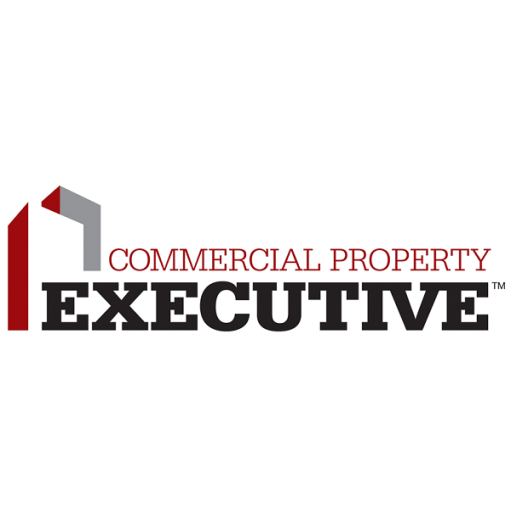
- February 15, 2016
Net Lease Column: Cap Rates at Historic LowsCap rates in the single-tenant net lease sector closed 2015 at historic lows. Will the trend continue this year?
Read More
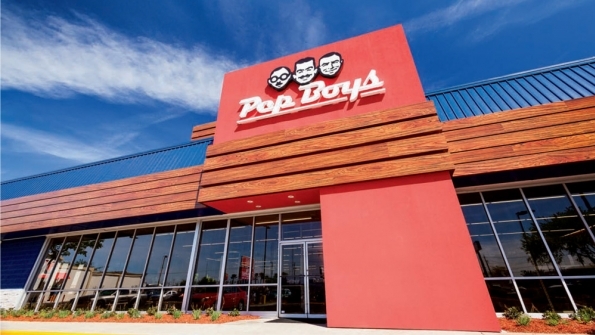
- February 15, 2016
Will Icahn’s Acquisition of Pep Boys Affect the Net Lease Market?Activist investor Carl Icahn has won the bidding war for Pep Boys, beating out Bridgestone Corp. to claim the Philadelphia-based automotive aftermarket chain. The deal is valued at roughly $1 billion—a staggering number when compared to the $800 the Pep Boys founders initially invested in 1921.
Read More
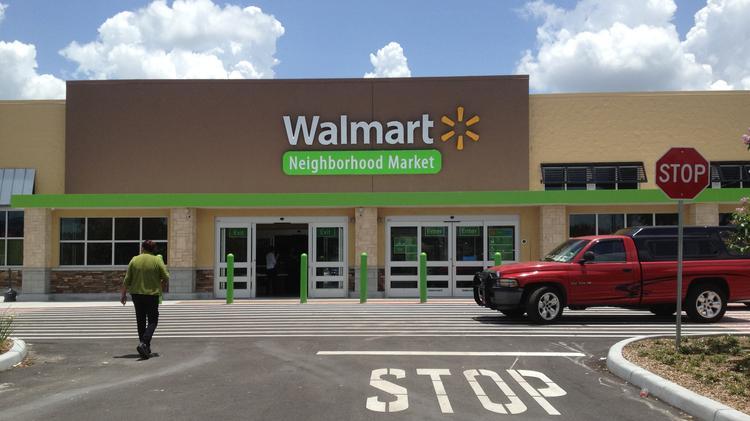
- February 15, 2016
New Walmart Market Depress Cap RatesThe single tenant net lease big box sector saw a significant shift in 2015, according to the latest report from the Boulder Group, a net lease firm based in suburban Chicago. Cap rates compressed from the fourth quarter of 2014 to the fourth quarter of 2015 by 63 bps to 6.08%. That decline was steeper than seen in the entire net lease retail sector, which compressed by only 25 bps during the same period. This represents the first time since 2010 that the big box sector was priced at a premium to the entire retail net lease market.
Read More

- February 15, 2016
Big-Box Properties OutperformCap rates for net-leased big-box properties declined in 2015, leading to increased investor demand for the low-risk assets—but is there enough supply to go around?
Read More
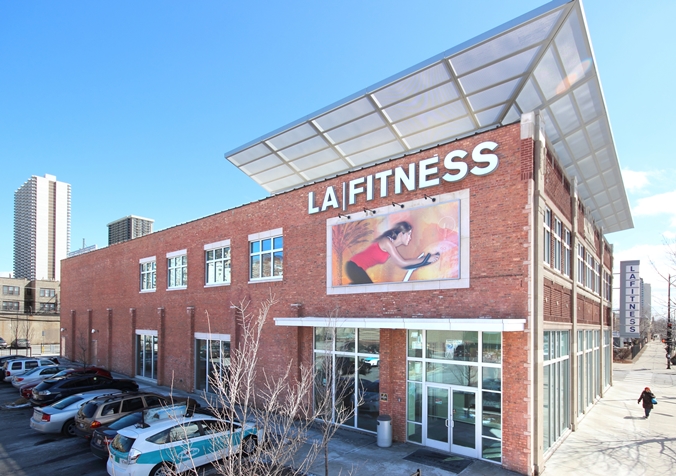
- February 09, 2016
LA Fitness Sells For Record Cap RateRandy Blankstein and Jimmy Goodman of Northbrook, IL-based The Boulder Group represented Crossroads in the transaction and say the purchaser was a high net worth individual based on the West Coast in a 1031 Exchange.
Read More
